#henry lopez icon
Text
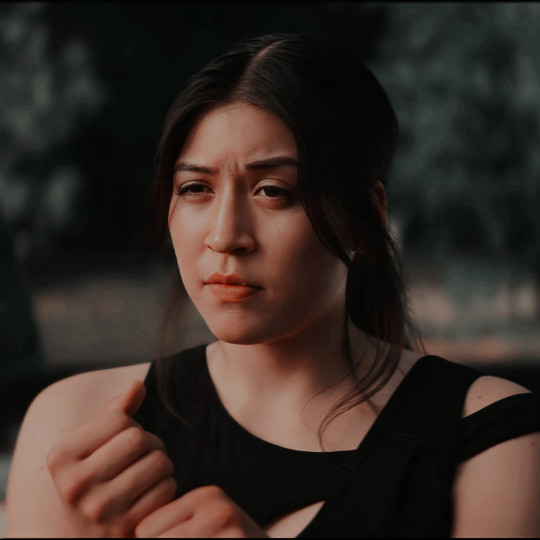


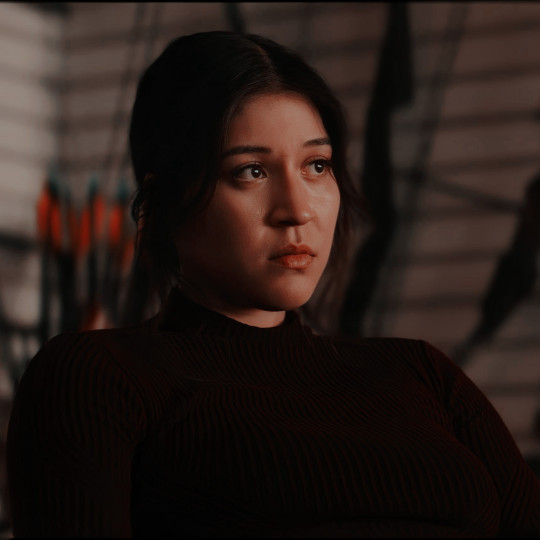
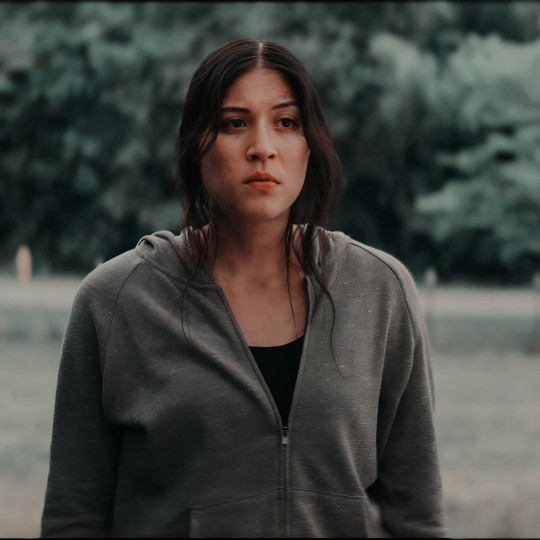

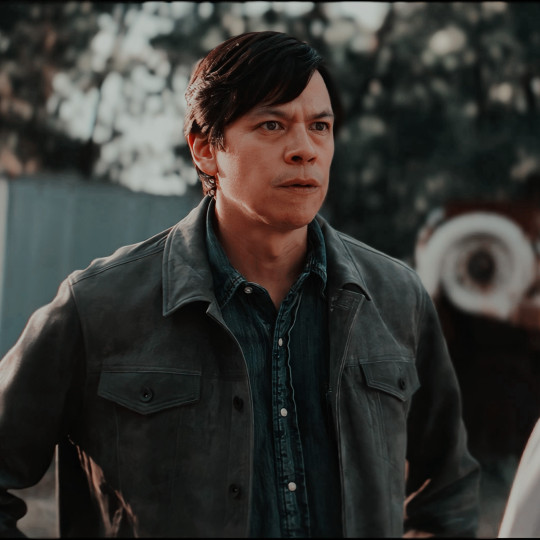
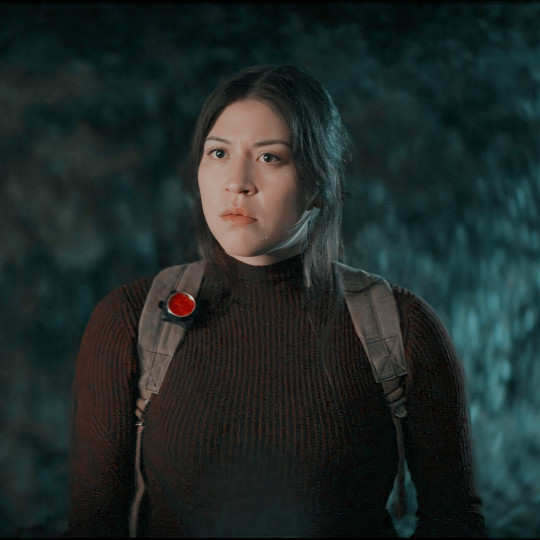
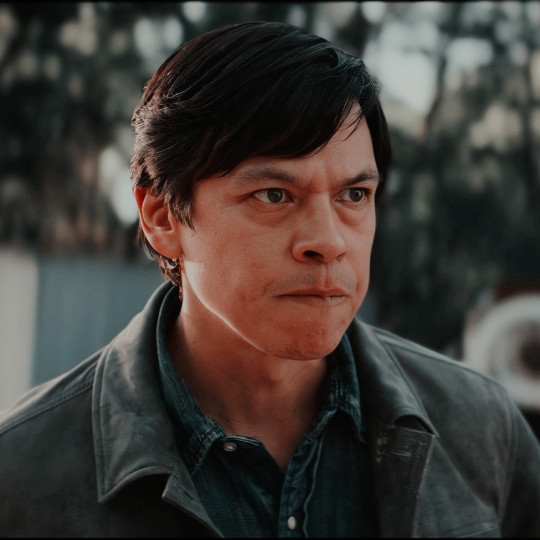
𝐢𝐜𝐨𝐧𝐬
𝐞𝐜𝐡𝐨
#echo#echo icon#echo icons#maya lopez#maya lopez icons#maya lopez icon#alaqua cox#alaqua cox icon#alaqua cox icons#henry lopez#henry lopez icon#henry lopez icons#chaske spencer#chaske spencer icon#chaske spencer icons#marvel#marvel Icon#marvel icons#mcu#mcu icon#mcu icons#mcu aesthetic
30 notes
·
View notes
Text

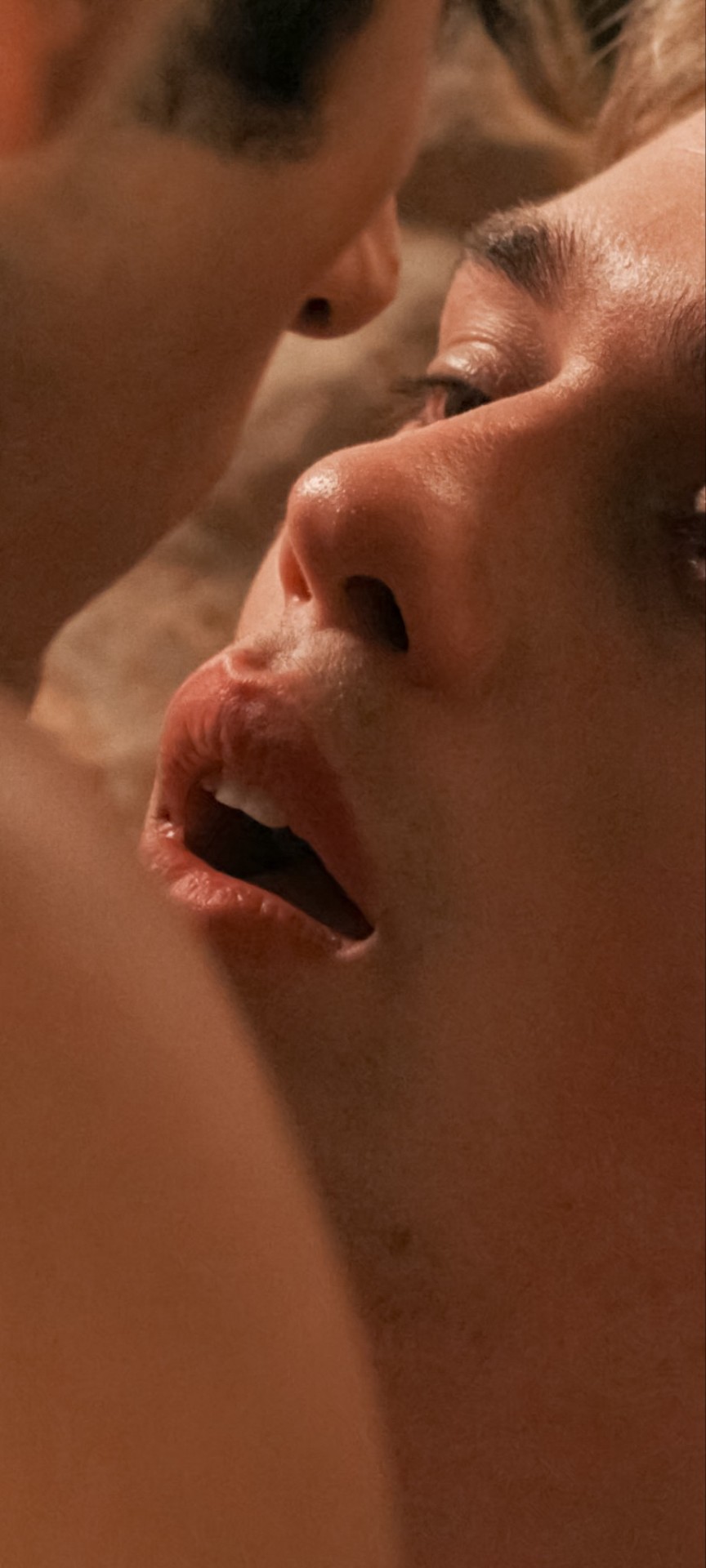
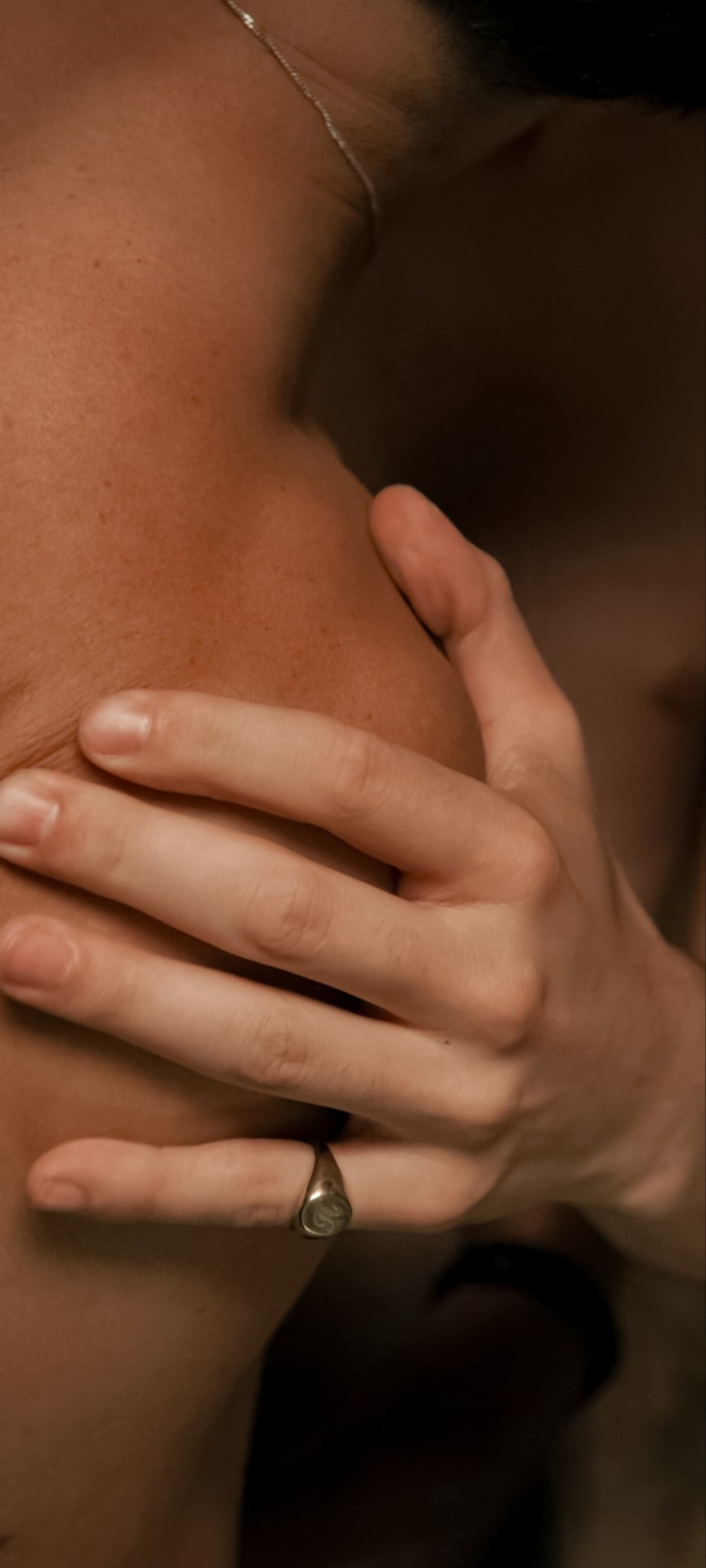
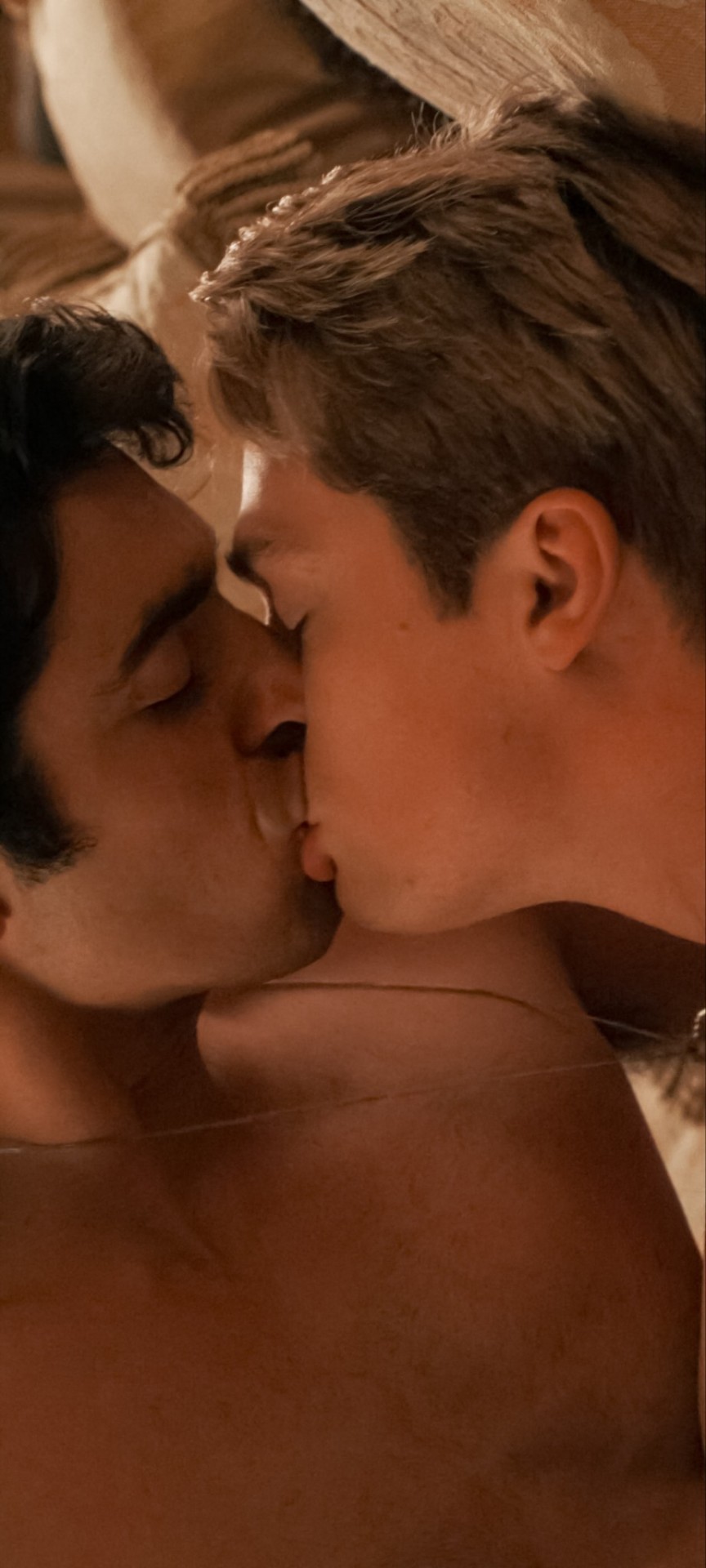
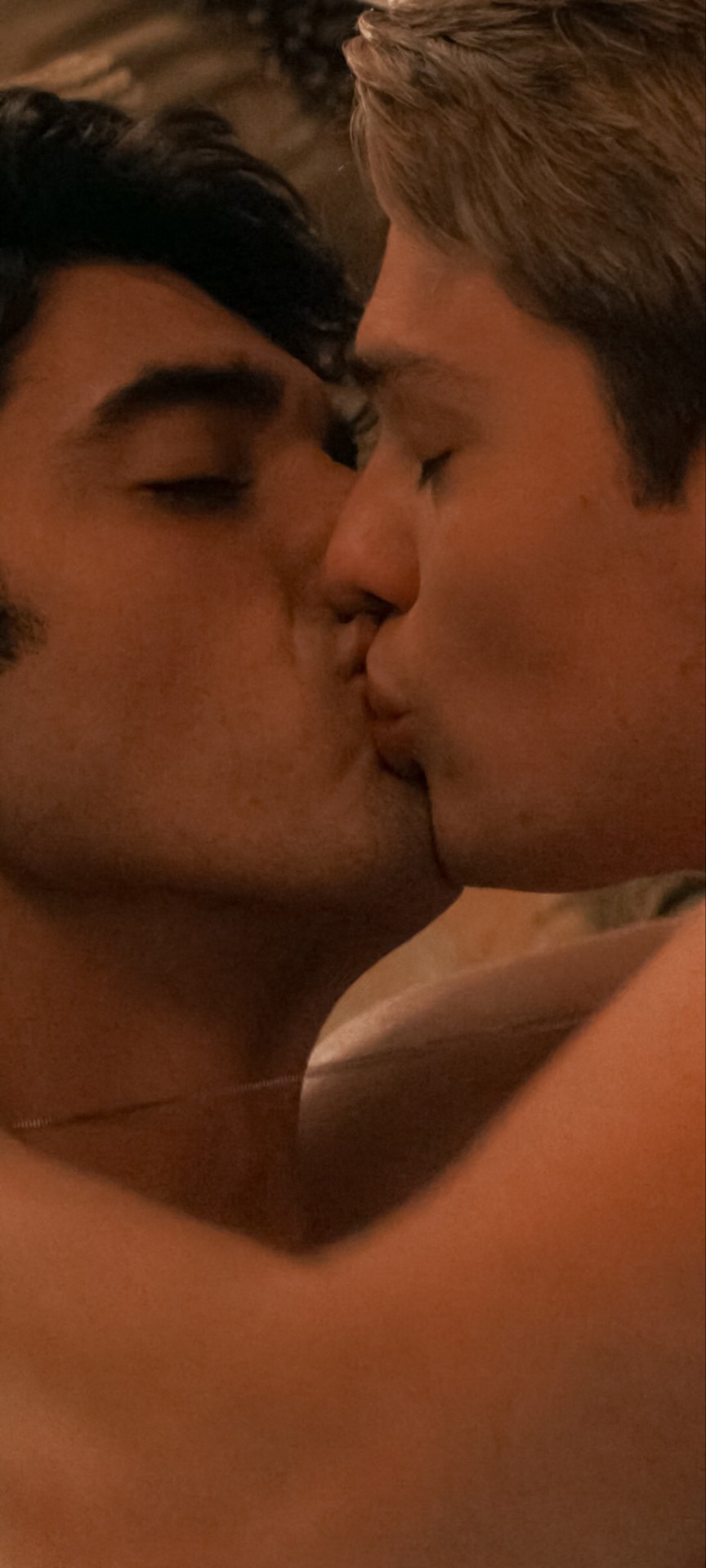
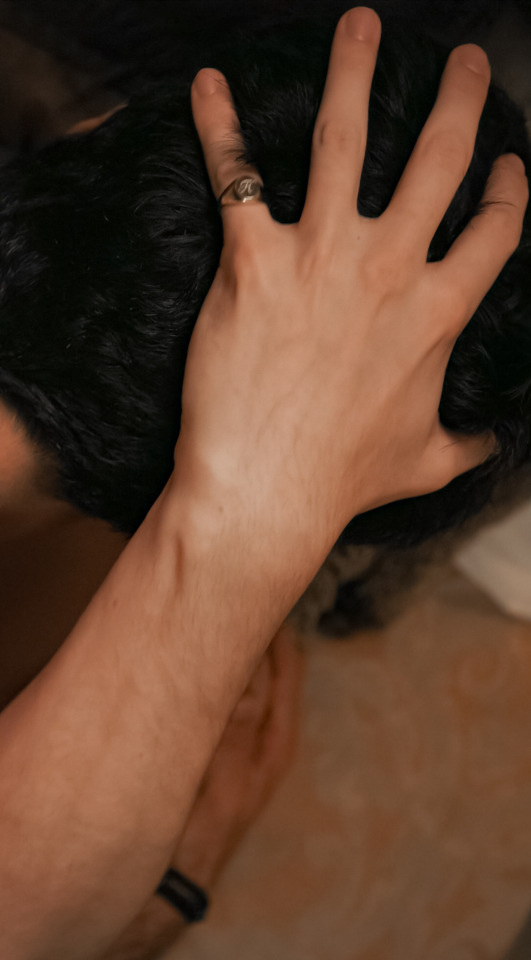
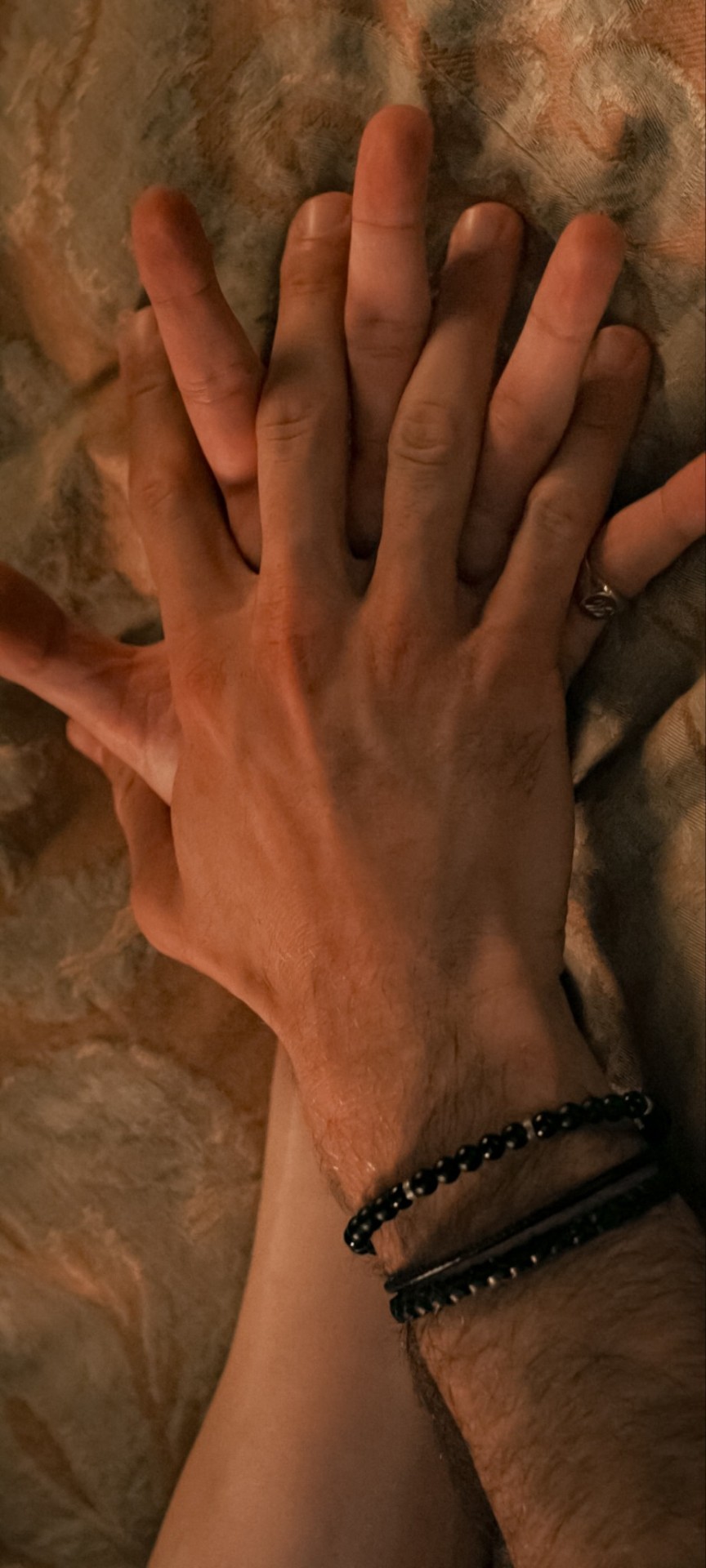
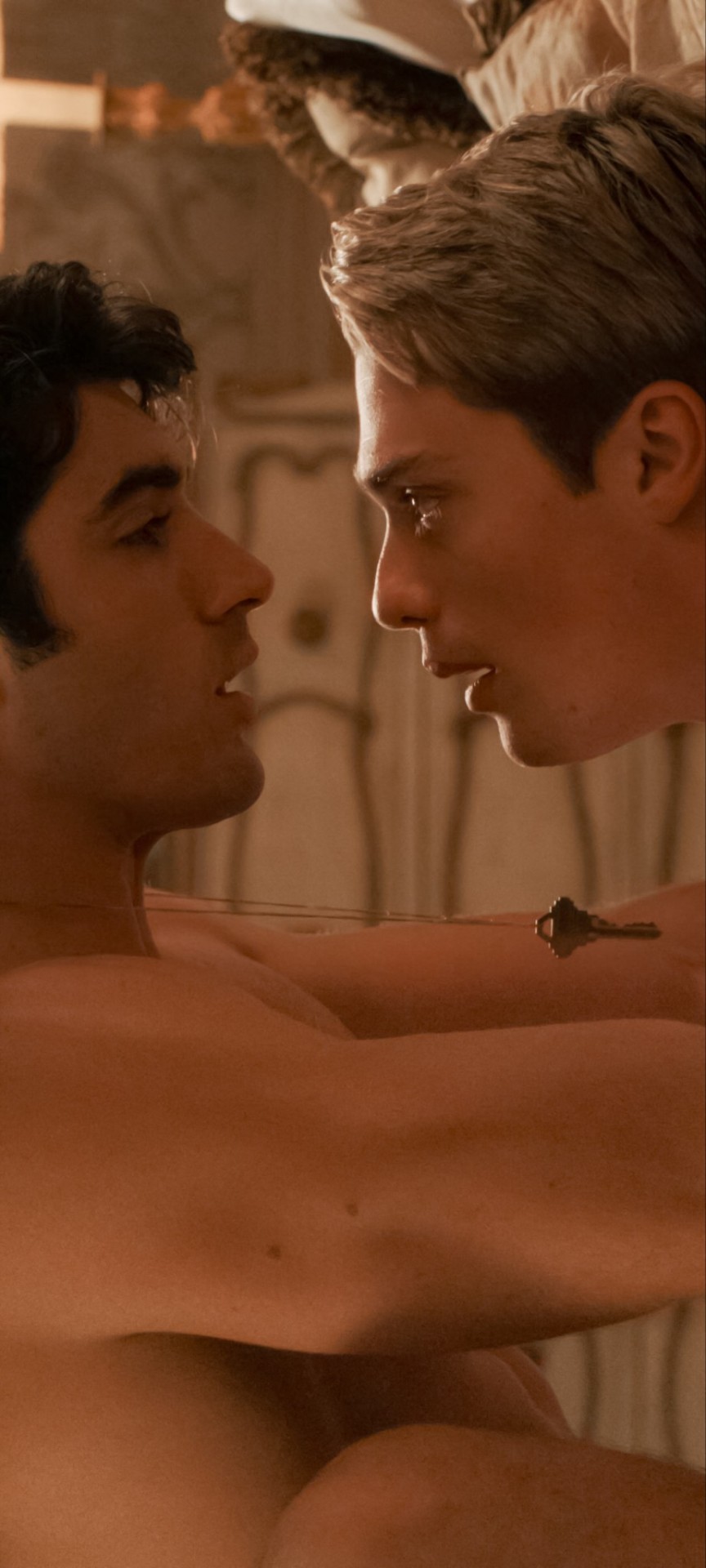
THE BEAUTY OF...
Red, White & Royal Blue directed by Matthew López.
#red white and royal blue#rwrb film#rwrb movie#rwrbedit#rwrb spoilers#alex and henry#alex x henry#alex claremont diaz#prince henry rwrb#prince henry of wales#prince henry#henry fox mountchristen windsor#henry mountchristen windsor#henry fox icons#taylor zakhar perez#tzp#nicholas galitzine#acd#matthew lopez
1K notes
·
View notes
Photo

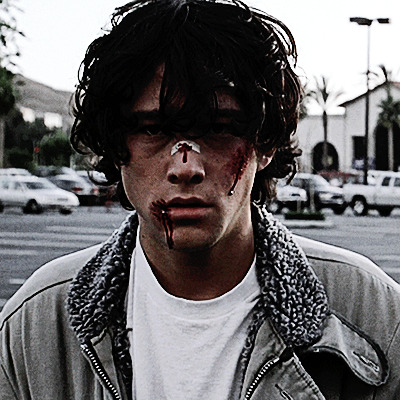



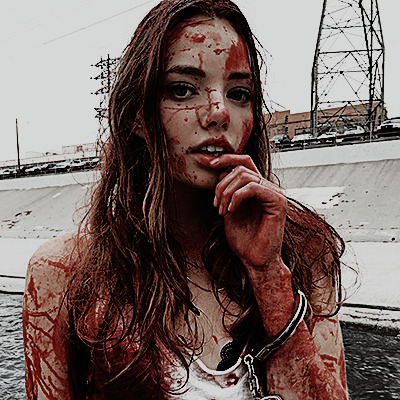
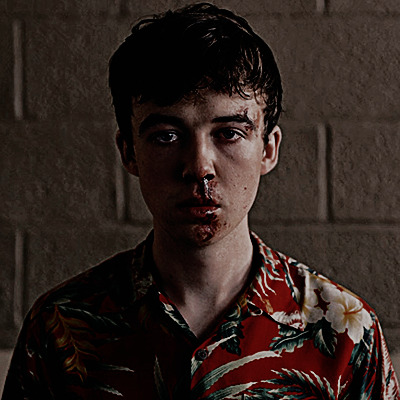


(400 x 400): random people covered in blood icons
[ ❗️ ] like or reblog if you save or use
#tw blood#blood icons#icons#random icons#luke and franky#joseph gordon levitt#india eisley#henry bowers#nicolas hamilton#james cook#kristine froseth#alex lawther#marcus lopez arguello#maria salazar#saya kuroki#skins uk#deadly class#brick 2005#teotfw
197 notes
·
View notes
Text
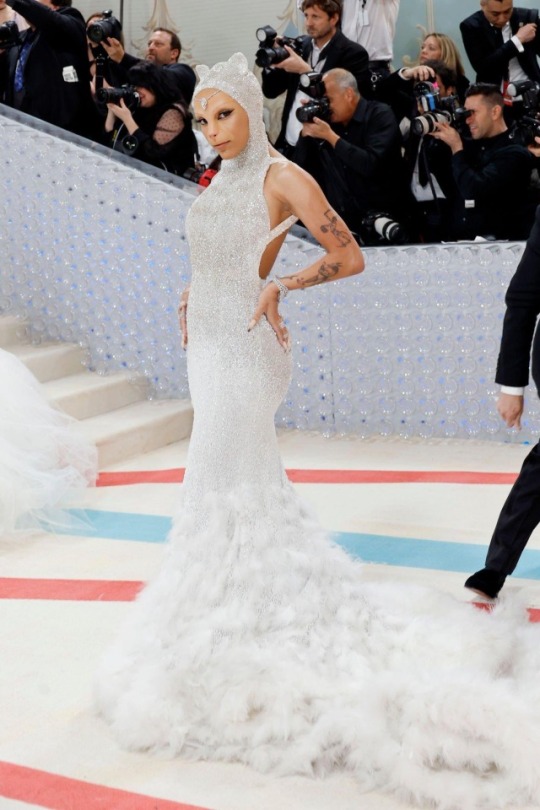
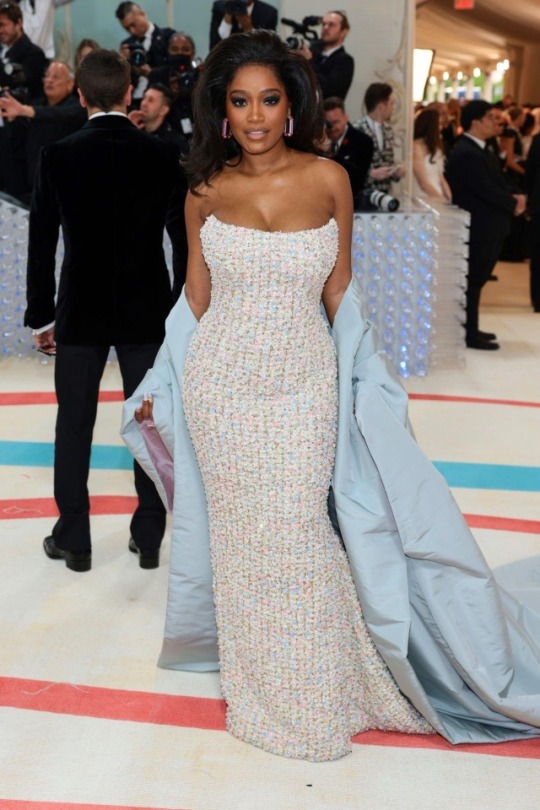
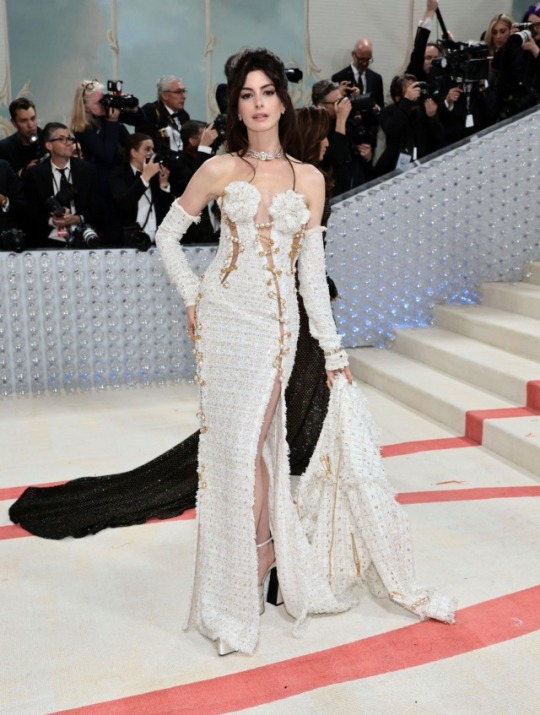

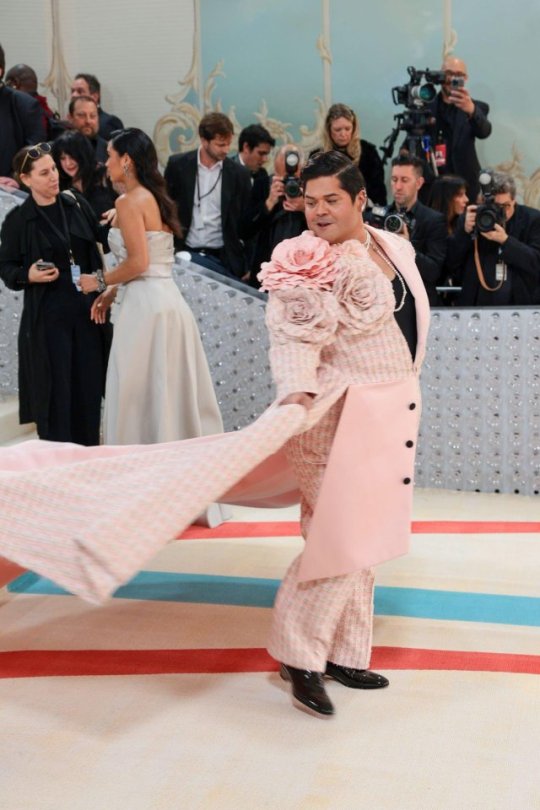
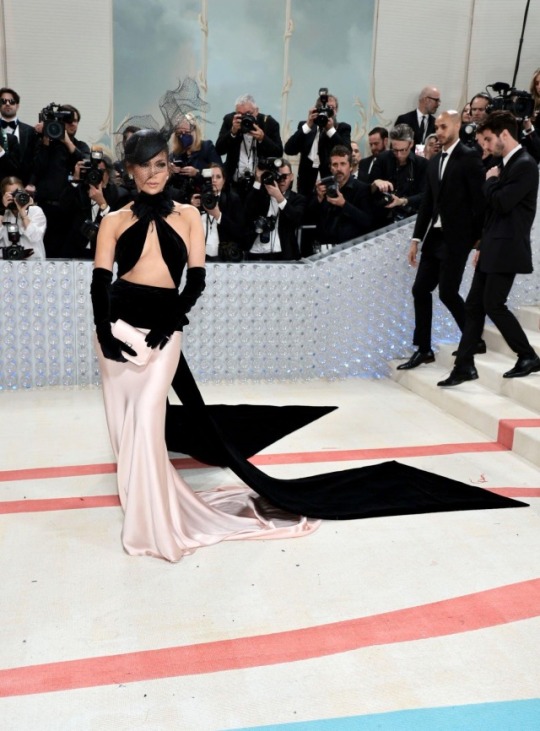
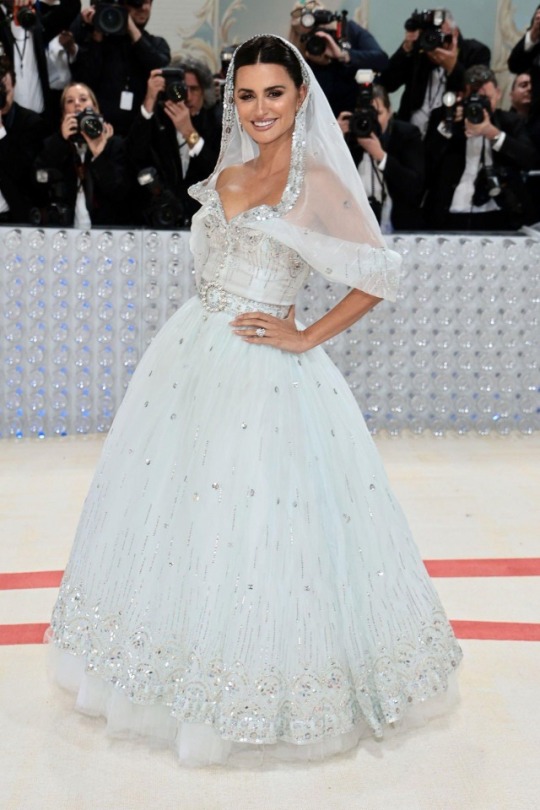
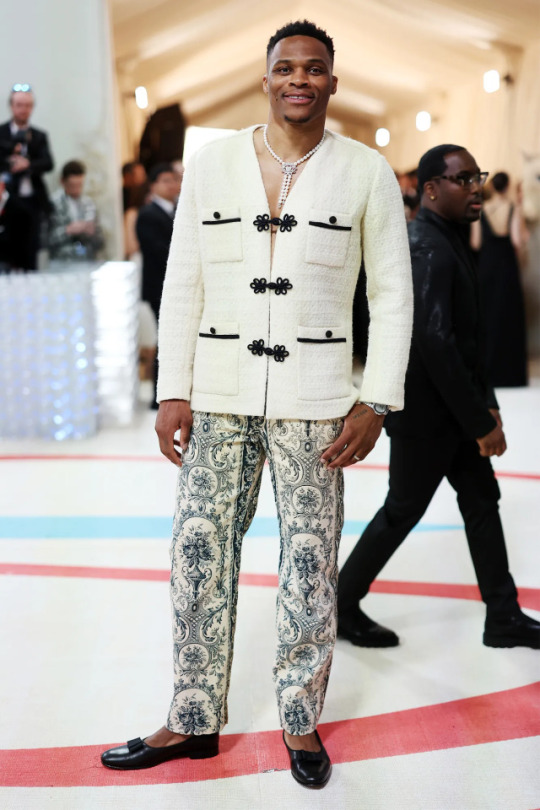
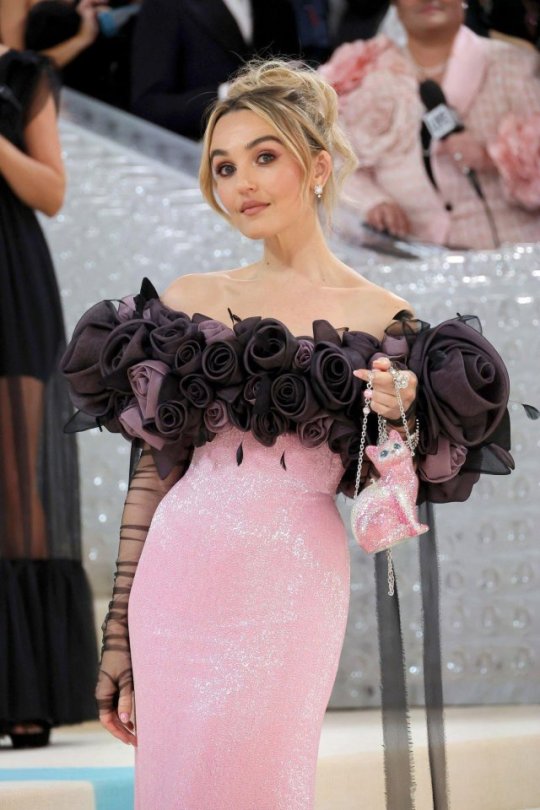
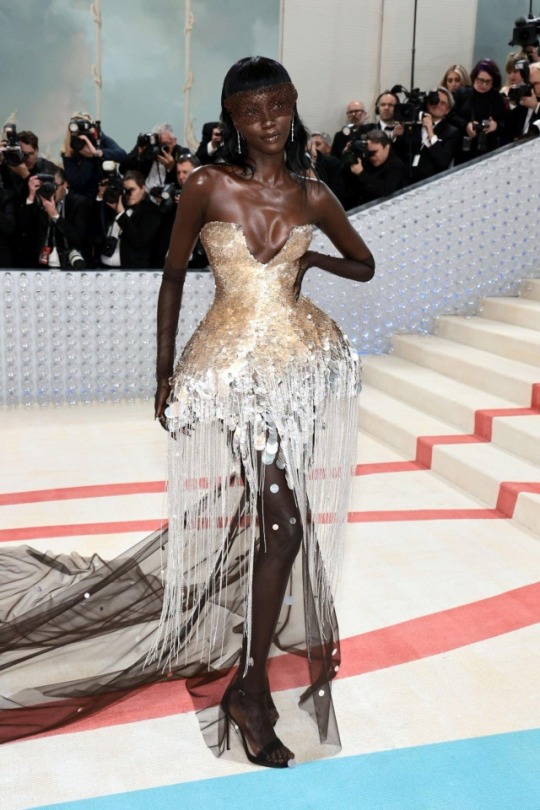
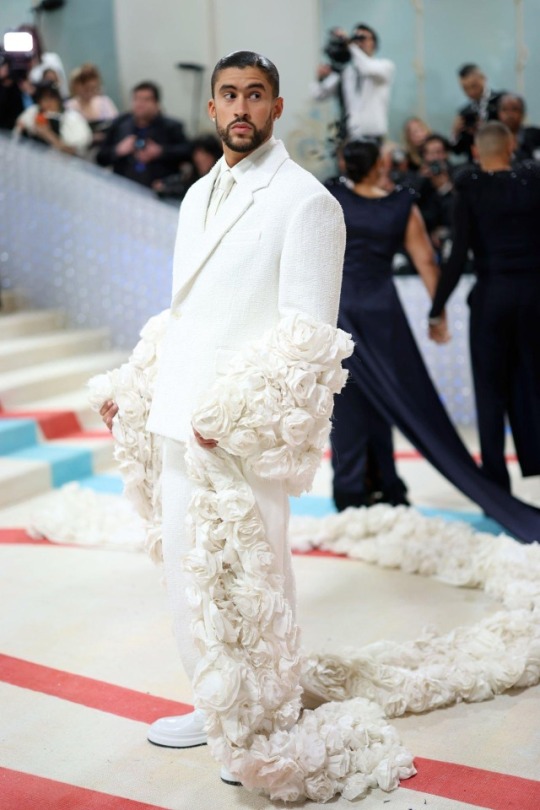
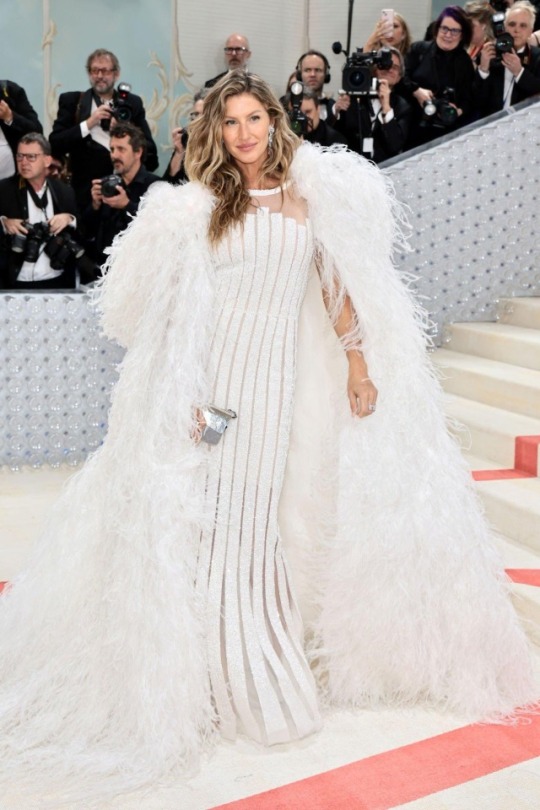
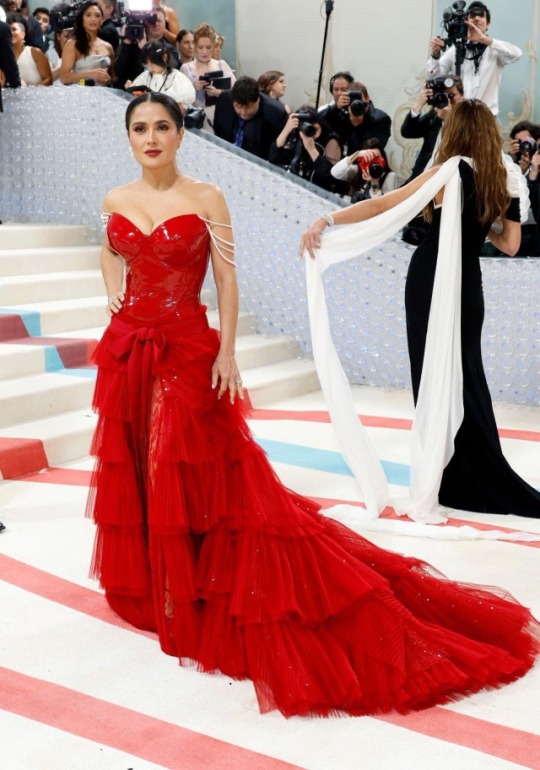
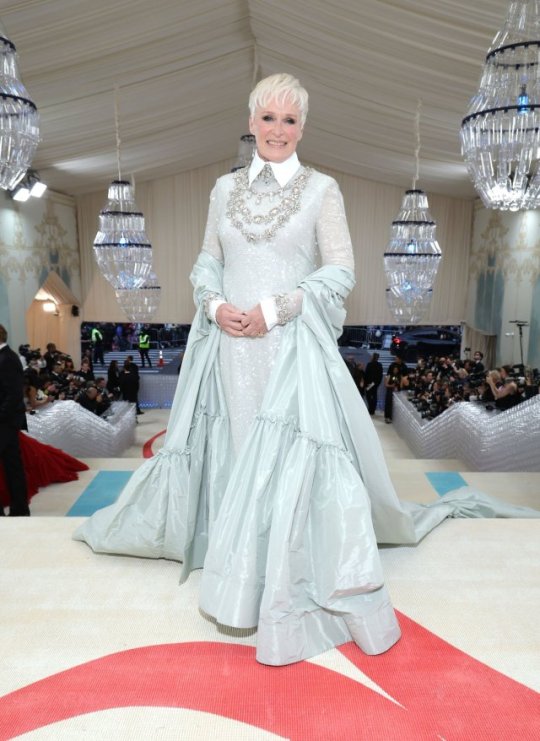
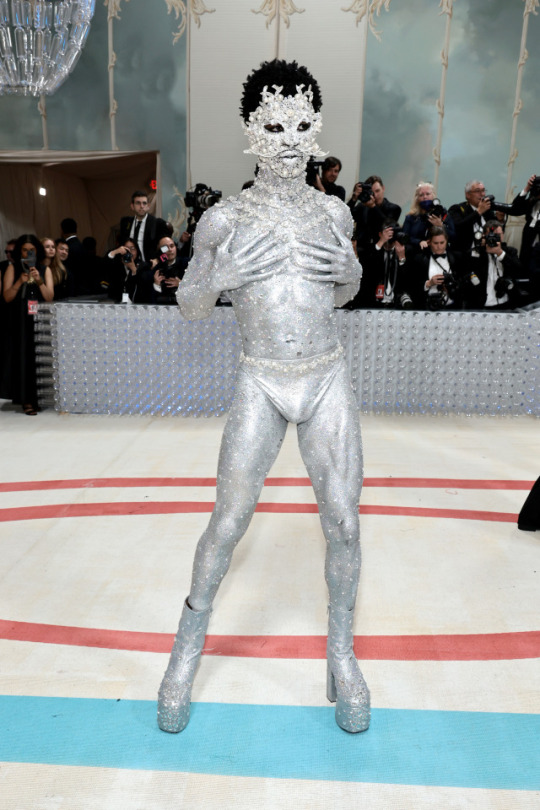
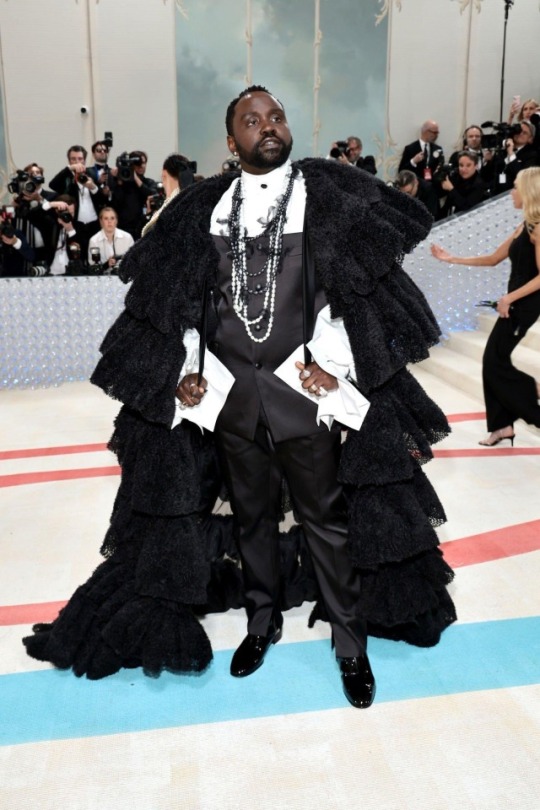
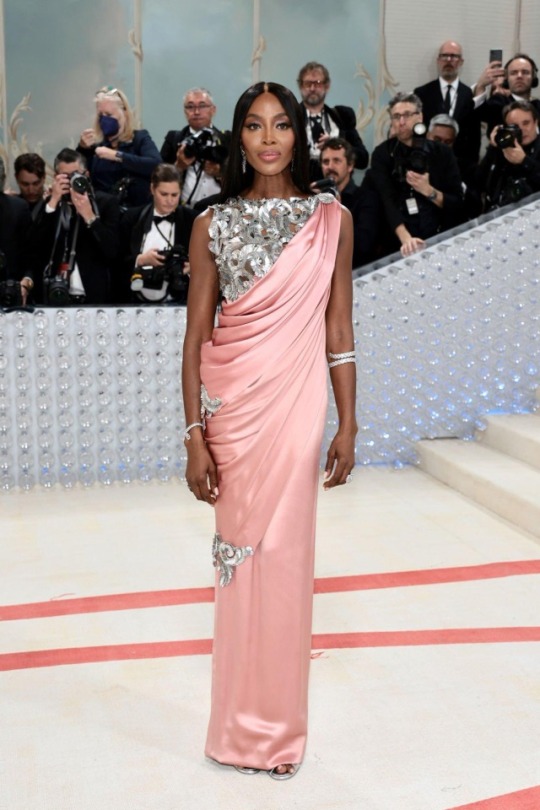
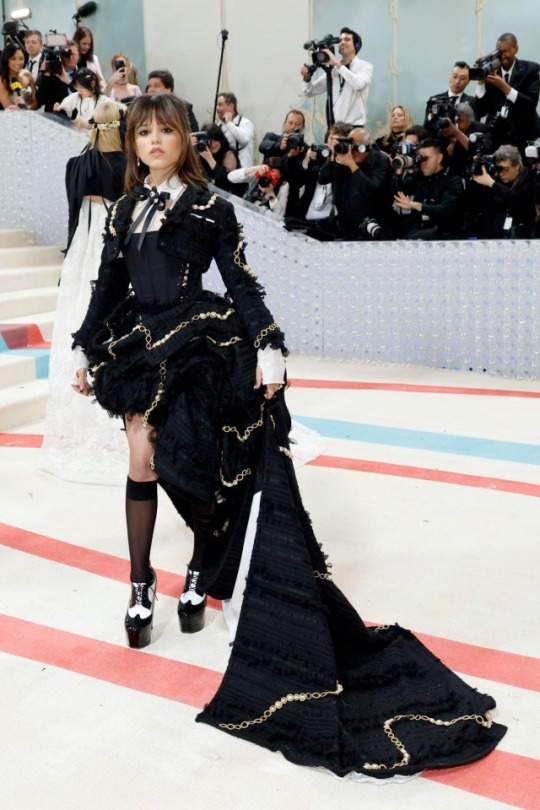
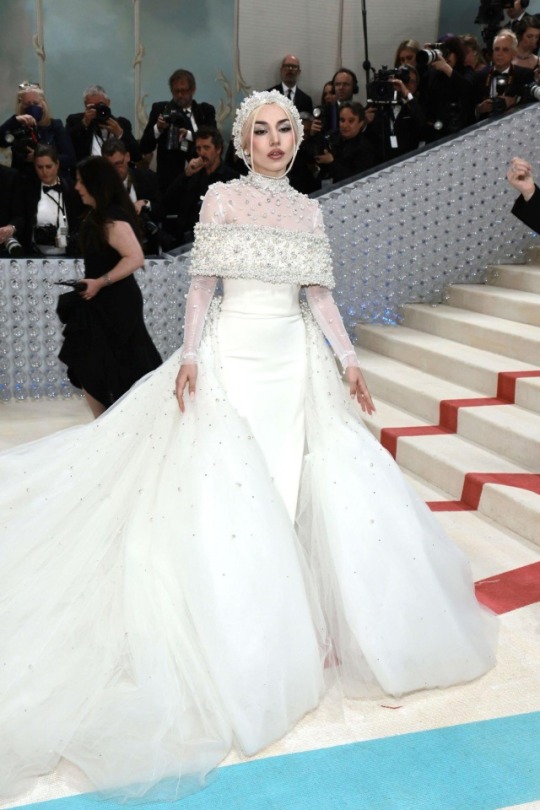
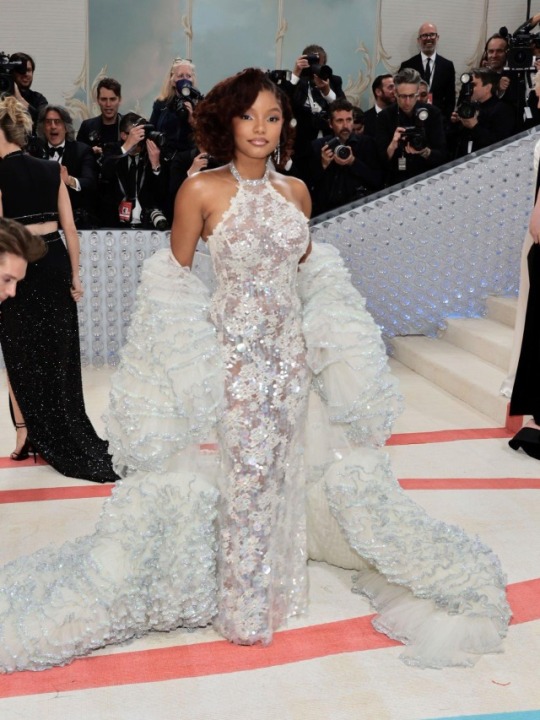
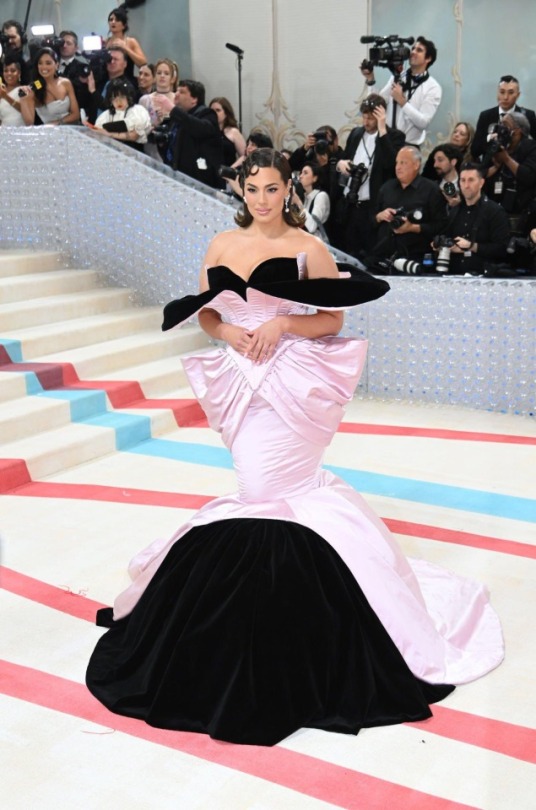
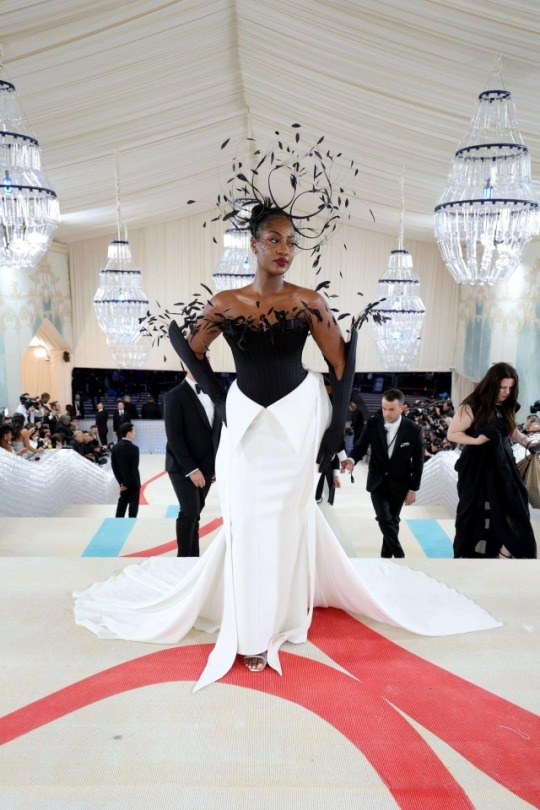
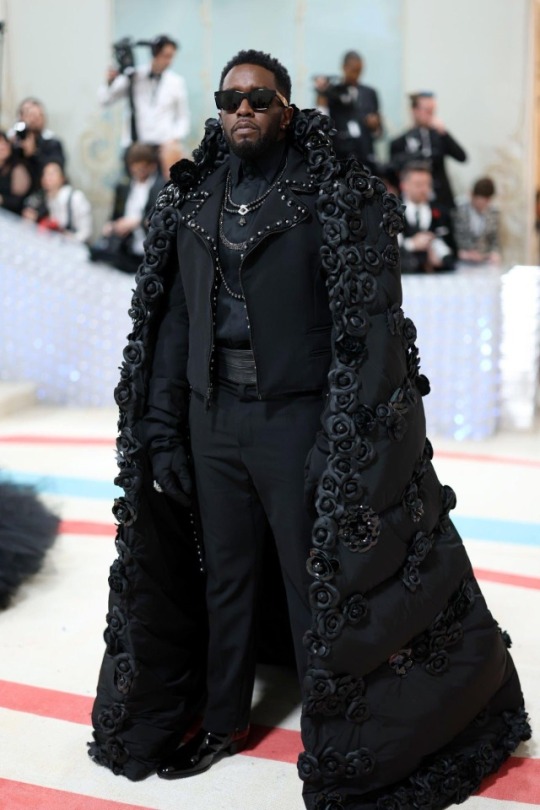
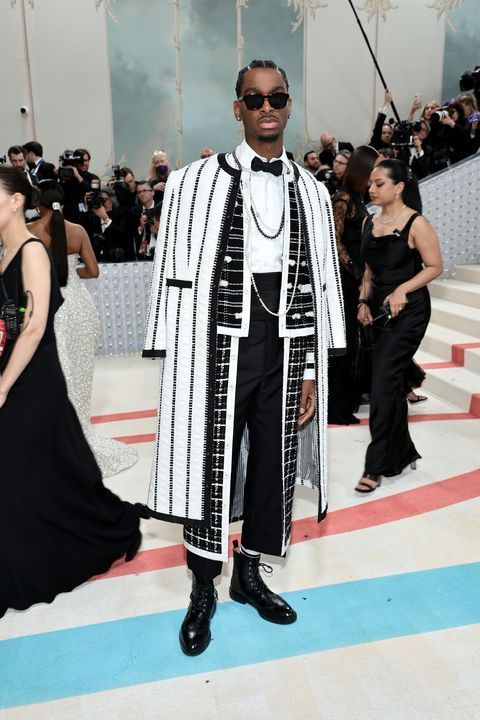
In no particular order, my top looks from the 2023 Met Gala "Karl Lagerfeld: A Line in Beauty"
My thoughts are below, but I'll be honest, I didn't really do any background research this year because there wasn't much to be done. These are really just my opinions on whether or not I liked the look.
Ironically, I felt this was a very mediocre year, which led to me having a lot more favorites than usual because they were kind of all on the same level. In previous years I would have separated this into multiple posts, but I don't really see the point.
Doja Cat: I wanted someone to dress up as Choupette the cat and she delivered, and managed to do so in a way that was still fitting for the event
Keke Palmer: She looked amazing, and really captured the Chanel look with the bombshell hair and the extremely bedazzled tweed. I honestly don't want to think about how much that dress weighed
Anne Hathaway: Besides that fact that I love everything Anne Hathaway has ever done, this dress was the perfect combination of honoring Lagerfeld's style while also incorporating it into the style of the brand she was representing (Versace). It had tweed and pearls, but also sex appeal and safety pins
Cardi B: First, I just want to appreciate her ongoing commitment to high fashion and the fact that she had three (3) completely separate looks. This particular Miss Sohee look was my favorite because she's living out my glinda barbie mermaid fairy princess dreams
Harvey Guillen: This was one of the first looks I saw of the night, and still one of my favorites. It has all the Lagerfeld style essentials, but still manages to look unique. Plus, creative menswear always gets extra points because the bar is painfully low, though this year was a surprisingly pleasant exception.
Jennifer Lopez: It's not the most creative look, but it's right up my alley and honestly, do we expect anything groundbreaking from JLo? She's always going to show up in something pretty that's decently on theme enough for me to just focus on whether or not I like it. And this immediately makes me think of classic Chanel.
Penelope Cruz: She was a co-host, it's vintage Chanel couture from the 80's, and she's one of the people I most heavily associate with Lagerfeld and Chanel. A win all around.
Russell Westbrook: I really want to give Russell Westbrook credit for always showing up to the Met Gala and really going for it. I love all the details: the pearl necklace, the tweed blazer with floral clasps, the bows on the shoes
Chloe Fineman: Another first look that turned out to be a favorite. This again had all the necessary design elements without feeling like a cheap knockoff. Also major points for the bedazzled cat bag.
Anok Yai: I don't know and I don't care how this relates to theme, she looked like a goddess
Bad Bunny: Another man not only doing something interesting but incorporating the theme? Genuinely shocking. Obviously I loved the OTT floral cape, but I really loved the ode to c. 2005 Chanel with the backless suit and backwards necklace.
Gisele: She wore the same dress from an iconic 2007 editorial, proving not only that she still has it, but that she's always had it. A true supermodel.
Salma Hayek: She looked hot, I don't know what else you want me to say about it. Also it had color, which nothing else did. My eyes were starving for color.
Glenn Close: For starters, she needed an entire team to carry her train so props for that. She brought the drama, the glitz, and the "age is just a number so shut the hell up" glamor.
Lil Nas X: This was, for lack of a better phrase, a cheeks out, bedazzled, balls to the wall look. The Choupette inspiration is more obvious when he was inside with the fur (ish?) coat on, but I honestly didn't care. I needed a moment and he delivered. Though I do wonder (1) how long it took to bedazzle him and (2) will he every fully be de-glittered.
Brian Tyree Henry: I don't know if it's the pose or the cape, but it's giving me dramatic shakespeare vibes and I appreciate it.
Naomi Campbell: The only issue I have with this look is that they called 2010 Chanel Couture "vintage" and I can't accept that. Beyond that, I mean, it's Naomi Campbell in Chanel Couture. I was also dying for any semblance of color at this point and somehow this dress was among the most colorful
Jenna Ortega: The perfect combination of chanel tweed cropped blazer/mini skirt and the Wednesday Addams aesthetic. Which was interesting because I thought she was trying to move away from that but I don't care it was a successful look
Ava Max: Chanel was known for the haute couture bride, and this not only really captures that, it was one of the most and quite honestly only majorly dramatic looks of the night
Halle Bailey: She looked like a mermaid and I love that for her
Ashley Graham: I would have loved this look regardless, but after seeing the dress it was modeled after, I also think it was one of the best tributes of the night
Tems: Has she ever looked bad on a red carpet? Her headpieces are just getting bigger and more elaborate and I see nothing wrong with that.
Diddy: I love the drama + the floral cape, though I am left wondering how he didn't faint under all of that. Also, you can roast me all you want for captioning his post with Sean Combs but that's what was given to the AP so it's what I went with.
Shai Gilgeous Alexander: A final man who followed the theme and wore something interesting, arguably more interesting than some of the women. I actually think I like this look better without the coat over it.
#met gala#met gala 2023#red carpet#fashion faves#fashion favorites#met gala favorites#to quote the princess diaries#your majesty paolo is exhausted
408 notes
·
View notes
Text


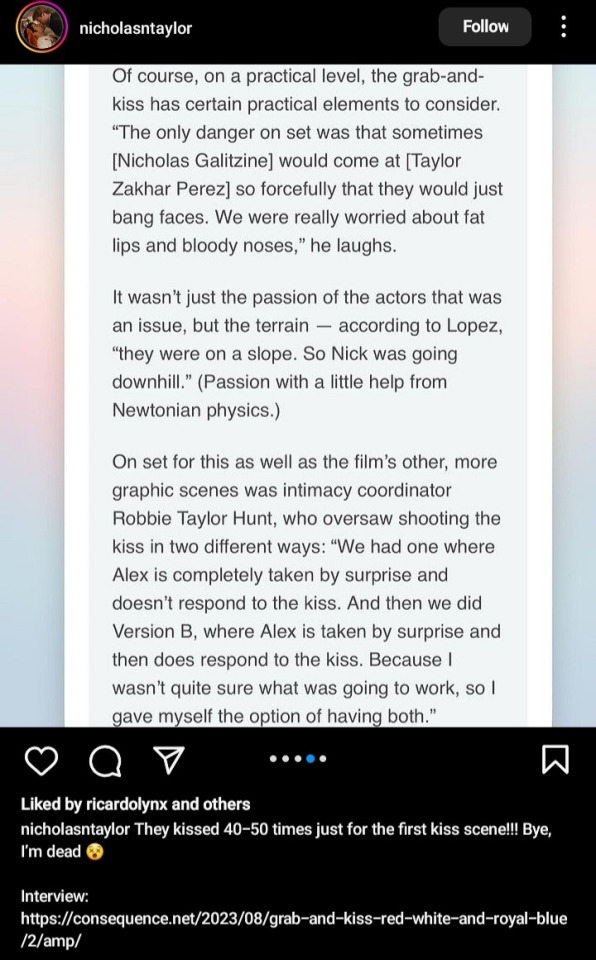

just leaving this here♥
instagram
+

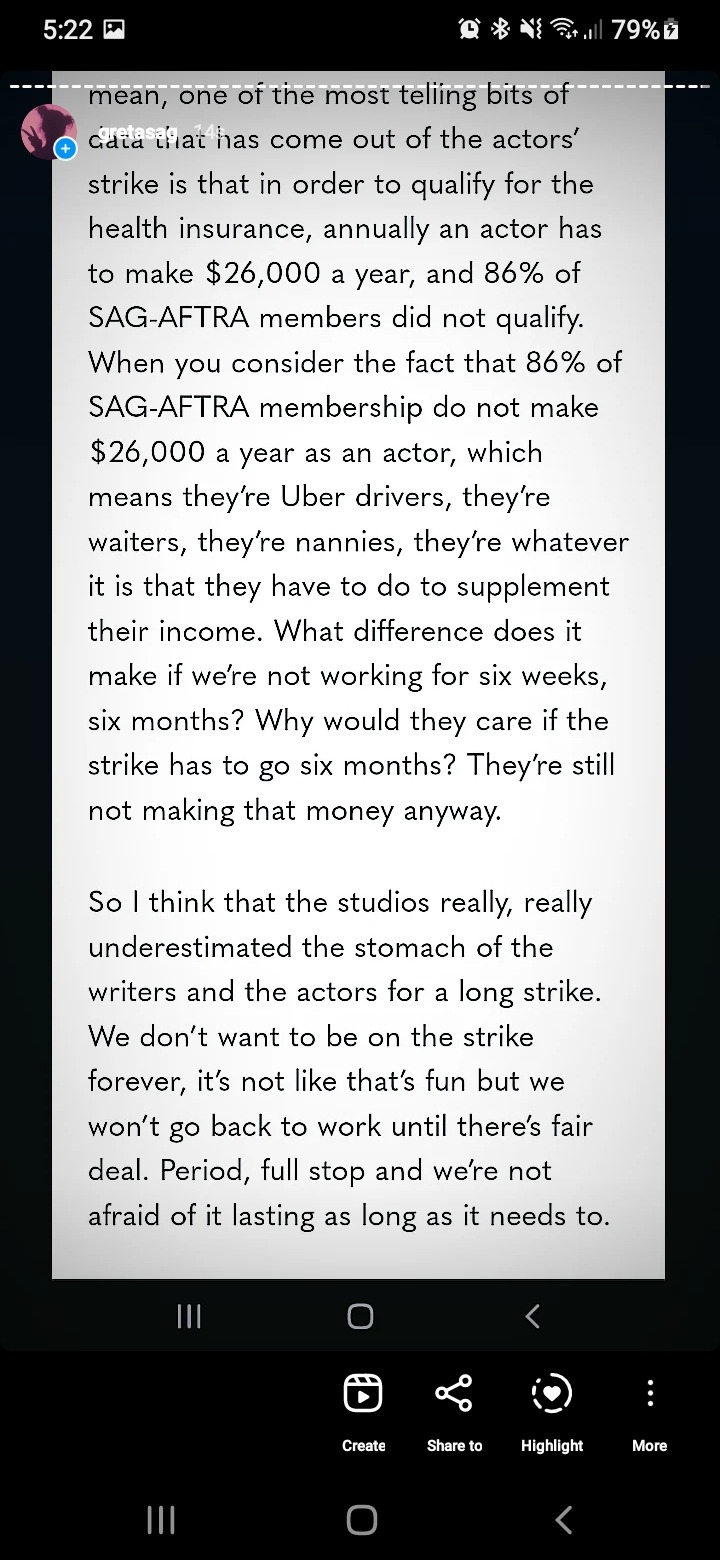
#rwrb#rwrb movie#rwrb 2023#rwrb bts#rwrb film#red white and royal blue#red white and royal blue movie#firstprince#alex claremont diaz#prince henry of wales#henry fox#prince henry fox mountchristen windsor#prince henry george edward james hanover stuart fox#prince henry rwrb#acd#agcd#tzp#taylor zakhar perez#nicholas galitzine#nick galitzine#matthew lopez#casey mcquiston#alex x henry#henry x alex#Instagram
71 notes
·
View notes
Text
The Princess Bride Musical Dreamcast
The fact that with all the new broadway musicals are adaptations and NO ONE has done the Princess Bride yet is absolutely criminal, so if that were to hypothetically happen, here's my dream cast list.
Framing Device:
Grandchild: I can't really put anyone for grandchild, since I don't know many child actors, but I do think there should be a rotating cast, like they had with Mathilda on Broadway.
Grandfather: Mandy Patinkin, aka the original Inigo Montoya.
Mother: Robin Wright, aka the original Princess Buttercup.
I think it would be really sweet and fun to have two of the original movie's cast play parts in the framing device, almost like they're passing the baton of telling the story to the next cast.
Main Story:
Westly: Joshua Henry
I don't know if this is a controversial statement, but Westly is a baritone, and I think Joshua Henry would be absolutely perfect. He's charming as fuck, he's a phenomenal actor and vocalist, and he's absolutely gorgeous. Perfect leading man for a story that is about telling the best story ever.
Buttercup: Maria Bilbao
I think Buttercup would be a legit soprano, and as a big fan of Sweeney Todd and the recent revival, Maria Bilbao, who played Johanna, would be absolutely perfect for it. Just go listen to her Green Finch and Linnet Bird and you'll get it.
Inigo Montoya: Colman Domingo
Does Colman Domingo sing? I don't know. Could he act the absolute SHIT out of the confrontation between Inigo and the Six-Fingered Man? ABSOLUTELY. I have this vision of how to adapt the scene, which would also kinda translate Inigo's arc to a musical version. So in the original, the Six-Fingered Man trying anything to manipulate him, mocking him, that great "you have an overdeveloped sense of vengeance line, and Inigo is just not having it. He just keeps repeating the iconic line over and over again. In the musical, I would have the six-fingered man sing, like he's trying to get Inigo to sing with him, to give in to the performance, but Inigo won't sing, he just keeps repeating his line over and over. He refuses to conform to the typical "rising above" narrative and leave the Six-Fingered Man alive, he will be true to himself and his mission and won't let himself be distracted. Anyway, I don't know if this is a good idea, but Colman Domingo would be amazing either way.
Prince Humperdink: Aaron Tveit
I think Prince Humperdink should be the archetypal tenor boy and who is a better representation of current archetypal tenor boys on broadway than Aaron Tveit? Also he's really talented and I think he would act the shit out of this smarmy bastard role.
Count Rugen aka The Six Fingered Man: Josh Groban
I need Josh Groban on Broadway more, and I think he would do great at a quieter villain role, especially coming off a more angry and bloodthirsty role like Sweeney Todd. Also he looks a bit like the original Count Rugen, so that's a bonus.
Vizzini: Alex Brightman
I don't really have much behind this one, other than Vizzini is a weird little guy and Alex Brightman plays weird little guys really well.
Fezzik: Jason Segal
So ideally, I'd actually be able to cast an actor with gigantism to play the part, but I don't know of any, and couldn't find any while googling, so this is my backup essentially. During the lockdowns, a bunch of celebrities did The Princess Bride over zoom, and the scene with Rainn Wilson as Vizzini, Pedro Pascal as Inigo and Jason Segal as Fezzik is genuinely really great, but Jason Segal's Fezzik impression is spot-on and actually amazing. Also, we know from the Muppet Movie, How I Met Your Mother and Forgetting Sarah Marshall that he can sing so, I think he would do great.
Miracle Max and Valerie: Joey Richter and Lauren Lopez
I assume posting this to Tumblr, more people would know who Joey Richter and Lauren Lopez are than the average social media platform, but they are part of Team Starkid and Tin Can Bros and do some fantastic original musicals (please look up the Hatchetfield Trilogy and Spies Are Forever if you haven't seen them yet). They're both extremely talented performers, and also married in real life, so they would absolutely kill this.
Clergyman(Mawage guy): Brian d'Arcy James
I don't really have much of a reasoning behind this, I just think he'd do a good job.
Backups/Close Calls:
Denee Benton as Princess Buttercup
She's one of the best parts of Natasha, Pierre and the Great Comet of 1812, and that's saying something because that musical is (in my opinion) one of the best of all time
Pedro Pascal as Inigo Montoya
I don't know if he sings, and he would be amazing for this, but I wanted to challenge myself to think outside the most obvious choice. However, sometimes the obvious choice is a good one.
Bernadette Peters as Valerie
If the Witch from Into the Woods found love and inner peace
#broadway#fancast#musicals#team starkid#the princess bride#mandy patinkin#robin wright#joshua henry#maria bilbao#colman domingo#aaron tveit#josh groban#alex brightman#jason segel#brian d'arcy james#joey richter#lauren lopez#broadway adaptation#dreamcast#these are just my thoughts#these are just my opinions#please don't hate me#i do take criticism
20 notes
·
View notes
Text
so they've been filming the polo scene yesterday and i think also today, which i think says a lot about the movie itself because the polo scene isn't necessarily all that plot relevant aside from a few character motivations, so in honor of this I would like to take a few moments to remember why the polo scene is So Iconic:
by this point alex and henry have slept together once
by "sleeping together" i mean blowjobs. didn't even get a handy in.
henry decides to go to a charity polo match in fuckin connecticut (meaning, flying transatlantic) just to fuck alex again
alex decides to spend eight total hours (4 hour trip in and 4 hours back) just to fuck henry again
again, this is just for a blowjob
so alex spent 8 hours in a car and henry around 12-ish hours in a plane just for what amounted to, what, 20 total minutes in a tack room?
they had slept together once by this point
the only reason the polo scene exists is to show us that they're both extremely horny and can and will make poor decisions about it because plot wise we could do without it
this scene adds nothing to the plot. it's just alex on his knees in a tack room after four hours in a car and one hour of extreme duress watching henry in leather riding a horse and being super competent
the only reasons to keep this scene are horny reasons
and we still get to see this
so like thank you very much for this matthew lopez and god bless everyone who was involved here
#rwrb livenats#rwrb#red white and royal blue#rwrb movie#rwrb spoilers#and now we get to see nicholas in leather looking sexy#so like...... thank fucking god I guess#and happy history huh day to all those who celebrate
386 notes
·
View notes
Text
People who are defending this movie with life saying 'Queer people deserve the cute silly rom-coms', I just wanna say to you that this movie could have been an iconic Queer movie not just in the sense of a rom-com but in the sense of all Queer media. The fact that it didn’t leave up to its potential is heartbreaking. And the two biggest ways Matthew did this movie wrong is
1. Not showing the full extent of the pressure Royal family put on Henry. Softening this narrative by showing Henry is just scared of the scrutiny of public opinion and not his own homophobic grandparent and brother and an age old traditional institution that demands the heir to breed and rule and will rather accept slavery, massacres, rape and colonization over two men loving each other. Stephen Fry's King was barely an obstacle. The way Matthew Lopez watered down Henry's struggles and what it took him to come out and love Alex is just criminal. It's a fictional medium. There was no reason to appease to the royal family here but they tried to keep peace with them for some reason. This sort of just left a bad taste in my mouth. I don't care about whether book plots were kept or not, watering down Henry's character was not fine, was not okay. They kind of watered down Alex's struggles too but given the injustice they've done to Henry,I dont even wanna get into the Alex situation.
2. Another thing that absolutely disgusted me is the fact Matthew Lopez thought it was fine to show Alex coming out on his own without Henry's input. Why even change that? The best part about the story was how important it was for Alex that Henry comes out when he wants to and how Alex runs to him to make sure he's okay and he's sure about them before making any statement. Henry saying he's willing to try and then being outed forcefully, simply doesnt make it okay for Alex to make speeches about their entire relationship without Henry's input. How did he know that Henry wanted their relationship publicly confirmed? What if he wanted to back out? Did Alex confirm it in the movie before he went ahead and said those things? If I was a movie watcher only, maybe I wouldn’t have questioned this. But since I have read the book and I have extensively read about what it meant for Henry and Alex to be outed like this and what it meant for their relatioterms, to be brave and show an united fronts to the world by coming out on their own terms, I cannot accept this change.
Now I didn’t absolutely hate the movie. I really loved how it started. But as the plot progressed, it started to get worse as they kept butchering the story progression and character development when it should've gotten better with time. I personally loved the cast and TZP and Nick have done absolutely their best. But I cannot help blaming the makers of this movie for watering down the intensity of the story, butchering of the character development and ruining the story telling. And I'm sure, anyone who has read the book, won't disagree with me on these points and those who havent read the book and think of me as some bitter bookreader, I'd suggest you to read the book first because then you too would be mad at the film makers for not utilizing this story to its full potential.
#red white and royal blue#red white and royal blue movie#nicholas galitzine#rwrb movie#taylor zakhar perez#hrh prince henry#alex claremont diaz
37 notes
·
View notes
Text
Eddie Redmayne Says 'Willkommen' to Broadway in First Production Photos from Cabaret Revival (Exclusive)
'The Good Nurse' actor is starring as the Emcee alongside Gayle Rankin as the musical's leading lady Sally Bowles
By Sabienna Bowman Published on April 15, 2024 02:30PM EDT
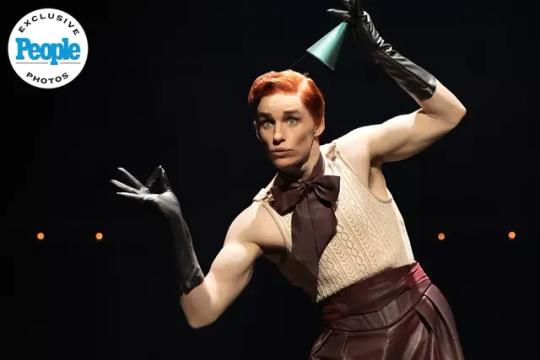
Eddie Redmayne is ready to put on a show in the first photos from Broadway's Cabaret revival!
In PEOPLE's exclusive first look at the famed John Kander and Fred Ebb musical's return to the Great White Way,The Good Nurse actor, 42, suits up at as Kit Kat Klub's mercurial Emcee. With his jaunty green party hat, oversized brown cravat and black gloves, Redmayne is both intriguing and imposing as the fascinating character.
In another snap of the Emcee in action, Redmayne leaps into the air as several members of the cast dance around him during the show's iconic opening number, "Willkommen."
See Eddie Redmayne and Gayle Rankin in First Rehearsal Photos for Broadway's Cabaret Revival (Exclusive)
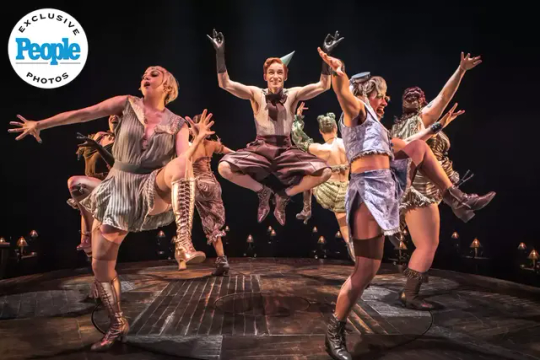
Additional photos from the show shine the spotlight on House of the Dragon actress Gayle Rankin in the role of the vivacious nightclub singer Sally Bowles. In one compelling photo, she seems poised to take the stage with a microphone in hand as she's surrounded by ensemble members during the song, "Mein Herr."
Another picture finds Rankin in a ruffly white dress while holding a prop cigarette as she performs the song "Don’t Tell Mama."
The Cabaret revival is being directed by Rebecca Frecknall, who helmed the West End version, which also starred Redmayne. Previews began April 1 at the August Wilson Theatre in New York City, with the show set to officially open on April 21.
Never miss a story — sign up for PEOPLE's free daily newsletter to stay up-to-date on the best of what PEOPLE has to offer, from celebrity news to compelling human interest stories.
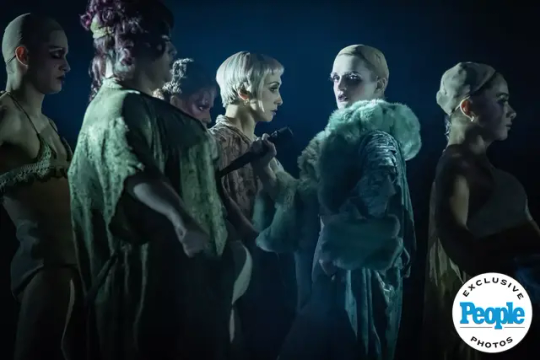
Cabaret has long been a success both on the stage and screen. Based on John Van Druten’s 1951 play I Am a Camera, which in turn was adapted from the 1939 novel Goodbye to Berlin by Christopher Isherwood, Cabaret first hit Broadway in 1966. It was later turned into the 1972 film of the same name starring Oscar-winner Liza Minnelli.
The musical tells the story of Sally, an ambitious English singer who starts up a relationship with American writer Clifford Bradshaw as he observes the eccentric characters who populate the Kit Kat Klub in Berlin. Set between World War I and World War II, the growing unrest beyond the club's doors is ever-present as the artists within express themselves through song.
It features a score by Kander & Ebb made up of a string of songs that have become musical theatre mainstays, like “Willkommen,” “Don't Tell Mamma,” “Mein Herr,” “Two Ladies,” “Tomorrow Belongs to Me,” “Money,” “Maybe This Time” and, of course, “Cabaret.”
Jennifer Lopez Visits the Kit Kat Club for Broadway Revival of Cabaret (Exclusive)
Redmayne, who also produces the Broadway revival, has long said that Cabaret “properly ignited” his love for theater, while playing the Emcee in a student production of the musical over 25 years ago.
In an October 2023 statement, he shared, "It now feels completely thrilling and a little surreal to be a part of Rebecca's truly unique vision of Masteroff, Kander, and Ebb's brilliance as it arrives on Broadway, where the piece has such a history."
In addition to Redmayne and Rankin, the rest of the principle cast is rounded out by Ato Blankson-Wood (Clifford), Steven Skybell (Herr) and Tony winner Bebe Neuwirth (Fräulein), as well as Natascia Diaz (Fraulein Kost and Fritzie); and Henry Gottfried (Ernst Ludwig).
The cast also includes, Gabi Campo (Frenchie), Ayla Ciccone-Burton (Helga), Colin Cunliffe (Hans), Loren Lester (Herman/Max), David Merino (Lulu), Julian Ramos (Bobby), MiMi Scardulla (Texas), Paige Smallwood as Rosie, and Marty Lauter (Victor) — also known as Marcia Marcia Marcia of RuPaul's Drag Race fame.
Tickets for Cabaret are on sale now.
https://people.com/see-eddie-redmayne-in-first-production-photos-from-cabaret-revival-exclusive-8633414
#eddie redmayne#eddie redmayne cabaret#cabaret new production#cabaret nyc#nyc#august wilson theatre#people magazine#people aricle#broadway#gayle rankin#sally bowles#the emcee#people#marc brenner#photographer
11 notes
·
View notes
Text
RWRB: The Movie
Even before RWRB started climbing the bestseller lists back in 2019, the word was out: this one is going to be big! So Hollywood studios immediately began clamoring for movie rights, which Amazon Prime won in a sealed-bid auction. We fans then filled the internet with suggested cast lists—I was going to say, “none of which even came close to naming the actors eventually chosen, especially the principal leads.” But then a friend reminded me that he had actually suggested Rachel Hilson as Nora from the start, and (don’t read this next bit, Nick and Taylor), “I also had some great suggestions for Alex and Henry, which would have been perfect if they had gone for younger actors closer to the ages the novel specifies.” I sit corrected.
Meanwhile, we settled in to wait for an announcement that the movie was starting production, with a fervor unmatched by even the most rabid fans of the Left Behind series looking for the Second Coming. And we waited … and we waited … and we waited. First-time director Matthew Lopez, a Tony award-winning playwright who also wrote most of the script, seemed to be taking his sweet old time casting the film (though I suspect that once Nicholas Galitzine threw his hat into the ring to play Henry, no one else was even considered). And there matters sat. It didn’t take quite as long to start filming as Jesus has taken to return, but at times, it sure felt like it.
Then, with a rustling of angels’ wings and a blast from golden trumpets, the announcement came: the film had been completely cast and shooting was about to begin! Aside from the two leads, Matthew gave few particulars about who was playing whom, and almost no candid shots of scenes being filmed showed up on the web. There was a bit of flack when Rachel Hilson was announced as Nora, because of the book’s only Jewish character becoming Black. And when Queen Elizabeth II happened to die three weeks after principal shooting ended, people began speculating about the possibility of Matthew being psychic, since he had chosen to replace the novel’s Queen Mary with King James III. Obviously, it didn’t take Madame Cleo to predict that a 96-year-old lady might not survive much longer and that a male monarch would occupy the throne by the time of the movie’s premiere. But in the midst of all the mystery surrounding the film, we needed to talk about something.
Then shortly after shooting wrapped, Nicholas Galitzine was asked how faithful the movie was going to be to the novel. Somewhat nervously, I imagine (he later confessed in an interview with GQ that he never actually finished reading it, so no doubt he was a bit hazy about details), he cautioned us not to expect a carbon copy of the novel, but instead to treat the two as “entirely separate.” He then added, “I just hope that people will think of this as a fun movie.”
Sorry, Nick. RWRB is not a fun movie. Yes, like the novel, it is funny in spots (and Matthew’s script, which I felt actually improved on some of CMQ’s lines, is also remarkably faithful to the original in its general outline and inclusion of certain iconic scenes—far more than most movie adaptations). But the film is mainly concerned with serious issues, and aside from occasional lapses into preachiness, it treats these issues with sincerity, tenderness, and genuine feeling. And this is in no small part due to the performance of Nicholas Galitzine himself.
I find Nick Galitzine to be one of the most amazingly attractive human beings I have ever seen. It’s not just because of his handsome face; my admiration springs from his obvious innate decency, his endearingly goofy sense of humor, and his undeniable talent. There was no need for him to admit that he never finished the book—it’s not like we could have checked—but when asked, he told the truth, because he is an honest man. When the writer from GQ whispered that some other diners at the restaurant where they were meeting were getting irritated because Nick was being too noisy, he immediately got up on his crutches (he had chipped a bone in his ankle in an accident on the set of his latest project, Mary and George) and tottered over to apologize, an all-too rare example of consideration and good manners in this post-Trump world. When teased about his habit of calling everyone “mate” and hailing them as if they were long-lost BFF’s, Nick replied with a laugh, “Everyone is my friend—I’m just very excited to see them! I’m very enthusiastic!” I’m sure that truer words were never spoken.
Though Henry was easy to cast, the hunt for Alex took rather longer, because Matthew was searching for someone who demonstrated just the right chemistry with Nick. Then a thirty-year-old actor named Taylor Zakhar Perez put himself forward (too old, I would have thought, to play the 21-year-ol Alex; plus, at 6’2”, he was actually two inches taller than Nick, and CMQ had made a major plot point out of Henry’s superior height). But when Nick and Taylor first met, Matthew was called away for a few minutes, and he came back to find them talking nineteen to the dozen like they were old friends. At that moment, Matthew knew he had found his Alex. The possible objections were easily dealt with (Alex is no longer a college senior, but instead is now in law school, so he could easily be in his mid-twenties; and clever camera angles make Nick look taller. The script also creates a running joke out of Alex continually insisting that Henry cannot possibly be 6’2” as his fact sheet claims; and when they’re standing side-by side, Henry accuses Alex of wearing lifts. Alex’s look of confused dismay makes us actually wonder). They are perfectly matched, and the result is screen magic.
I found Taylor to be a complete revelation. His last movie had been a quickly-forgotten (luckily for him) bomb called One Up, in which Taylor’s lines were mostly restricted to comments like, “No, girls can’t join our team! Girls can never compete with men in the field of …” (wait for it) “competitive gaming!” Huh? We’re not talking about professional wrestling or weight-lifting—we’re talking about computer games. Moreover, countless studies have shown that women’s reflexes are quicker than men’s, their brains are proportionately larger, and that men’s only real superiority is upper body strength. I thought that such ignorant sexism as Taylor’s character in One Up conveys was a thing of the past, but in a world where women can lose the right to control their own bodies at the stroke of a pen, maybe not.
Though Taylor has never before played so major a part (that I’m aware of), he acquits himself admirably here. From the moment Alex tries to persuade Nora to ditch the reception and “go do touristy things,” the role of Alex is obviously in just the right hands. As it turns out, Nora might have done well to accept Alex’s suggestion, because he gets drunk at the reception and manages to create an international incident. And I must say, I very much enjoyed Henry and Alex’s interaction at the reception. Not only was I finally able to visualize the exact sequence of events leading to the disaster with the cake; I loved Henry’s fury at Alex’s dismissal of the proper use of titles (more about this below). It may make Henry look like a snobbish prig (which is certainly how Alex sees him), but Henry doesn’t care what Alex thinks. It also shows just how far Alex can goad him. For a royal, displaying such fury is even worse than making a scene, because royals are supposed to smother their feelings and appear cool, calm, and collected, no matter how trying the circumstances. Alex may be the first person who has ever been so lippy with Henry, and he really gets under Henry’s skin by doing so. (Which he will later do in a much more literal manner ….)
Which leads me to the BIG question we all wondered about: did Nick and Taylor’s offscreen friendship translate into SIZZLING sex onscreen? Well—no. And that’s fine by me. Any time I want to watch porn, there are any number of sites I could visit (or—ahem—so they tell me). Instead, these sex scenes give us poetry—aching, tender, romantic, and beautiful, allowing us the chance to peek into the depth of the characters’ intimacy, something made possible only by the actors’ consummate artistry. (Sorry—I couldn’t resist that one.)
Their first sexual interaction happens at the New Year’s Eve party, where they spend the entire evening talking and laughing together in a way that completely excludes everyone else. But then while everyone is sharing kisses at midnight (and several beautiful women make a beeline for Alex), Alex notices the (unkissed) Henry staring at him, heartbreak writ large on his face. Henry grabs a magnum of champagne and disappears, so Alex tracks him into the frozen Rose Garden. Critics have commented that this scene is detectably CGI, but come on, people—the movie was filmed during the summer, and it’s not like they were going to fly cast and crew to South America for a true wintry landscape. Besides, the actors’ talent made them look cold, which more than met the needs of the scene.
The ensuing kiss is straight out of CMQ, and I thought Alex’s reaction to Henry’s grab-and-smooch is particularly good. At first he seems startled (though not shocked), but then he plainly starts getting into it. It is Henry who breaks away, with a look of shock and terror as he realizes what he has just done. Without a single word, Nick is able to show us exactly what Henry must be thinking: Oh, my God! I let the mask slip—again! How does this bloke always make me do exactly what I was brought up not to do—expose myself by showing my real feelings? Christ! I need to get out of here!
Now it’s up to Taylor to show Alex’s reaction to the incident. In the movie, he seems not to feel much more than mild surprise, and a vague curiosity about whether Henry might be gay. But in the book, Alex goes into full-on gay crisis mode because of his body’s immediate reaction, and he develops even more of an all-consuming obsession with Henry. CMQ devotes twenty pages to this issue, one which all LGBT’s must eventually face (and twenty pages is actually getting off easy—in my case, accepting my bisexuality took decades). But since the movie’s Alex readily acknowledges his male lovers, enjoying Henry’s kiss isn’t an issue for him at all. The only complication he now faces is coming out to his parents, though I’m sure they figured out that their son was bisexual long ago.
Then comes the White House dinner and the Red Room scene, after which Alex orders Henry to “come to my room at midnight, where I am going to do very bad things to you.” My aforementioned friend (the one with the cast list) points out that Henry unbuttons Alex’s shirt and begins kissing down his chest and stomach, and Alex leans back with a look of gratified pleasure, but then at the end of the scene, Henry is still fully dressed. (Didn’t Alex reciprocate?) Henry then invites Alex to a polo match back in the UK, at which we see the guys kissing and Alex pushing Henry onto his back and reaching down to remove Henry’s belt, and … that’s as graphic as it gets. Matthew rightly protested the movie’s “R” rating, since aside from a couple of f-bombs and a brief shot of Taylor’s bare backside, that’s it. An “R” rating? I suspect that it’s studio nervousness about a potential homophobic reaction, and if the execs are that squeamish, why did they buy the movie rights in the first place?
The final sex scene is extremely well done. Henry begins by telling Alex that he wants to make love to him, to which Alex uncomfortably replies, “Make love? Who says that anymore?” Well, maybe Henry didn’t want to scare you off, Alex, by using the same words as he does in the book: “Please—I need you to fuck me.” But obviously, Alex intuits that this is exactly what Henry wants, because Alex says nervously, “Um—I’ve never—” to which Henry smiles and says, “Don’t worry—I went to an English boys’ boarding school,” which is a far more likely scenario for Henry to have been initiated into gay sex than a virginal 17-year-old Henry being seduced by one of his older brother’s friends.
The two lovers gaze at each other, and then they gently, almost reverently, begin to touch. It made me think of times at night when my wife and I are in bed, and I look at her asleep on the next pillow, and I touch her in exactly this way. My heart feels like it will burst, and wonder floods me as I realize that this woman, whom I have loved for all these years, actually loves me back. Can the human heart ever experience anything more wonderful than such a realization? The same knowledge shines out of the men’s eyes in this scene—I love him, and he loves me. Then the touching becomes more intense, and as the scene progresses, without a single word or sound, Nick conveys the exact moment when Taylor seemingly enters him, and precisely when the pain of initial penetration tips over into pleasure. I’ll say it again: this guy is amazing. Ever since I first started watching Nick’s movies, I have said that he can communicate more in ten seconds of silence than other actors can manage in a two-page monologue, and that is exactly what he does here. (And he still has no acting awards? I mean, really?)
Alex acknowledges to himself that making love is exactly what he has been doing with Henry all along, but by trying to share this realization he only succeeds in scaring Henry off. Henry begins deflecting every time Alex brings up their future together, a future which Henry believes to be impossible. Alex tells him, “I want to see you at a barbecue stand with sauce smeared all over your mouth, so I can lick it off,” to which Henry replies, “Don’t they have napkins in Texas?” Alex begins talking about spending time together after the election, when “we can be naked all day, and walk down the street holding hands” (presumably after they’ve put some clothes on). I loved watching Taylor’s face as he nervously suggests their eventually going public, and tries to make his declaration of love. And (as always), Nick perfectly conveys Henry’s troubled emotions, as Henry cuts Alex off by jumping into the lake. The fear on Henry’s face as he submerges himself in the water is a perfect visual metaphor for the doubts and terrors in which he is drowning.
And make no mistake—these fears are well-grounded, and very real. Henry was born into a world where nothing matters more than hierarchy and the strict rules which govern it—thus his insistence that Alex address him correctly as “Your Royal Highness” rather than “Your Majesty,” a title reserved the monarch alone. Priggish? Pretentious? Maybe—but take away the outward forms which maintain this artificial world, and who is Henry? And if Henry insists on being himself and steps outside the royal system, the punishment will be both immediate and severe.
Prince Harry and his wife were still newlyweds expecting their first baby while CMQ was writing the novel. No one could have predicted that the devil’s bargain between the Palace and the media (which always demands a villainous royal to skewer before they publish praise about a more important one) would lead to the vicious unpopularity Meghan Markle currently suffers. The written abuse heaped upon her (greatly assisted by social media) became so severe that she firmly believes it led directly to the loss of their second child. So they felt they had to flee the country if they were going to save their marriage and their family.
But as Prince Harry describes in his memoir, Spare, they soon discovered that for doing so, within twenty-four hours of their arrival in this hemisphere, his funds were cut off and they were officially evicted from both their royal residences. The very next morning, his security detail was taken away, leaving them homeless and unprotected in a world of crazy stalkers (from whom Meghan had been receiving death threats) and intrusive paparazzi. Harry also found that a private security firm would cost him roughly six million dollars a year, which would soon eat up every penny his mother had left him. Fortunately for Harry and Meghan, friends stepped into the breach to help them, but except for a very few, his family has turned on him with silent fury and stony faces ever since. Even Prince Andrew, convicted of molesting an underage female and who must register as a sex offender anywhere he goes for the rest of his life, got more generous treatment than this. All Harry did was put his love for his wife and children above royal duty, but for doing so he has been cast into the outer darkness. And for the sin of claiming his own right to fall in love with a brown-skinned American, Henry knows he would suffer the same fate.
But RWRB is a fairy tale, so of course everything works out fine in the end. The election which Alex’s forced outing has put into doubt ends with Ellen’s victory due to a strategy devised by Alex himself. Despite intense pressure from the royal family, Henry insists on staying with Alex and acknowledging their true feelings for each other, and the entire world rallies around them. It is a triumph for love and tolerance over “the stifling suffocation of heteronormative conformity.” (I wish I didn’t have to put that line into quotation marks, but no one who knows me would ever believe that I had come up with such an erudite and well-turned phrase on my own.)
I enjoyed the film immensely. I thought the actors were top-drawer, as was Matthew’s adaptation and direction. So what didn’t I like? The watering-down of the certain characters for one, but above all, the elimination of others, especially Alex’s sister June. Please bear with me, though, because I think I have a glimmer of understanding as to why Matthew might have done this. And with his love for the book, I am sure that he did not arrive at his decisions lightly.
Let’s start with the character of Nora. In the book, she is someone “with a computer for a brain” who adopts the online persona of “a depressed lesbian poet who meets a hot yoga instructor in a speakeasy and is now marketing her own line of hand thrown fruit bowls.” But in the film, she becomes little more than a walk-on, and her brilliant, prickly presence gets watered down into a warm and loving sister surrogate (necessary since June got axed—why include June when Nora can function for both?). Now that Nora is Alex’s supportive older sister, obviously there’s no hint of their past relationship from the book, in which “they just had to fuck to get it out of the way.” And without June, there’s also no need for a lesbian subplot. In the process, almost all of Nora’s spunkiness gets lost, and once the reception scene and the discussion with Alex about Henry’s New Year’s Eve kiss are over, she has nothing much to do but smile from the sidelines as she pairs up with Pez (who is also reduced to almost nothing—Henry’s incredibly wealthy, highly amusing and sexually ambiguous best friend barely has two lines). By reducing these characters, the movie loses the interest they both bring (Nora in particular).
This sort of character reduction is not limited to Nora and Pez. Many remaining characters get sanitized as well, if not entirely deleted. The abrasive Zahra who threatens to “staple Alex’s dick to his leg if it’ll keep it in his pants” morphs into a wisecracker who serves the essential function of calling Alex to account and dealing out the discipline he so obviously requires, but who always remains a friend. She thereby becomes much more likable—I loved the original character, but I used to wonder how someone so rude could have made it so far in politics—but in the process she becomes much more bland, and we lose most of her salty, prickly humor.
The salty-tongued Ellen, who sometimes uses her children as props and who ruthlessly cuts Alex loose when he threatens to become a campaign liability, gentles down into mere exasperated bossiness when dealing with her only child, and in the process becomes a fairly minor character. She shows none of the grit and determination that would have led her from her mother’s bar all the way to the White House. She is also still married to Alex’s father, Oscar Diaz, who has morphed from an important California senator into an undistinguished Congressman whose speeches everyone (but Alex) ignores. With Oscar and Ellen still together, the character of June loses one more necessary function: supporting and protecting Alex in the wake of their parents’ divorce, as well as her habit of challenging him for the behavior she believes may be fallout from Alex’s still-conflicting loyalties to his warring parents. But in the movie, the only hint of conflict between Mom and Dad is Oscar asking his son not to tell his mother that Oscar has been smoking out on the Truman Balcony.
And then there’s Rafael Luna. His abrasive, mentoring character gets deleted entirely, and his seeming betrayal (which causes Alex such agonized soul-searching) gets replaced with actual betrayal by a shifty investigative reporter. Luna goes undercover to expose a sexual predator and to prevent such a person from entering the White House (if only there had been this sort of double agent on the Trump campaign!). But in the movie, the guys get outed because a reporter named Miguel, a former lover of Alex’s, becomes jealous when Henry and Alex go off together at the DNC. I loved the cameo by Joy Reid (as I also loved the cameos by Rachel Maddow—and Matthew, while you were at it, why didn’t you also get Steve Kornacki?) as she pushes the reporter to explain why he had done such an underhanded thing. With all the hypocrisy and smug sanctimoniousness typical of his breed, the reporter gives a BS answer about “the public’s right, and need, to know such things about the people they elect,” which Joy immediately challenges by pointing out that (a) Alex has not been elected to anything, and (b) he has a perfect right to keep his private life just that—private.
So why did Matthew make all these changes? I think it may be for one simple reason: anyone adapting a novel for the screen must first identify the elements that made the original so popular, and, since we’re talking Hollywood, those which are also the most marketable. Every word must somehow advance the main storyline, and all subplots that distract from it must be ruthlessly eliminated. Multiple characters get condensed into one who can represent them all. There has to be a conflict engineered by the villain of the piece, but the elaborate undercover plot organized by the Richards campaign would have taken too much screen time. So it gets replaced by one which might be summarized in ten words: “Hell hath no fury like that of a lover scorned.” Of course, in a romcom, the screenplay must finally lead to a happy ending, and here we get two: in England, the lovers wave to an adoring public from the Buckingham Palace balcony; and in the US, Ellen finds out that she’s been reelected even as she and Zahra are composing her concession speech. Then Ellen, Oscar, Alex, and Henry wave at adoring supporters cheering Ellen’s victory.
RWRB the novel is only marginally a romcom; it is really a coming-of-age story, its message one of self-acceptance through self-awareness. This is what makes it so wildly popular among the YA audience at whom it is aimed, since adolescence is the time when the struggle to know and acknowledge who we really are is the most difficult. Just before the election, Nora tells Alex that he has no reason to be afraid of people’s reactions to his bisexuality; all he has to do to cement his popularity is to “Be Alex.” It’s good advice for all of us: difficult though it often is, our only real path to a full and productive life is by knowing and accepting ourselves as we are. And as a wise woman once told me, being yourself is a lot easier than being anyone else.
But self-acceptance is a particularly thorny issue for LGBT’s, even if our mothers are liberal Democrats like Ellen Claremont and our fathers are “patron saints of unisex bathrooms” like Oscar Diaz. As members of the culture into which we are born, from our very first awareness we know that there is something different about us. Something which our society teaches us is loathsome and contemptible, and which will inevitably lead to our eternal damnation. This is a pretty tough concept to handle, and we’re forced to confront it even before we enter preschool. But it’s not an issue the movie chooses to address: instead, it focuses on almost exclusively the developing romance between the two principals. This shoves the film’s entire weight onto Nick and Taylor, but fortunately these young men both have broad shoulders, and their talent is more than able to carry it. That talent also keeps us rooting for their characters’ happy ending, and if some characters and most of the subplots get cut, well, you have to break a few eggs to make an omelet.
So. Do I love the book RWRB? Of course I do—and how I wish it had been around when I was struggling with my issues as a young bisexual man in the 1970’s, since it would have saved me years of shame and pointless suffering. I would then have been much more ready for my own happy ending when Bobbie eventually entered my life. And do I love the movie RWRB? I totally do—I’m always up for a romance, and that is what Matthew, Nick, and Taylor have given us. In some ways, I actually prefer the movie (even though I know that saying this may lead to the RWRB police showing up at my doorstep to confiscate my “History, Huh?” T-shirt). You see, there’s one big problem with publishing a book with such a current, up-to-the-minute feel and format: it quickly becomes about as glossy and stylish as last year’s slang, and so when the Commemorative Edition came out in 2022, I found it curiously dated (the best part, for me, was its illustrations by Venessa Kelley). I think the movie will age a lot better, because with only minor alterations, it could be adjusted to almost any era—it’s not tied nearly so closely as is the book to the Gen Z / Millennial generation.
But to love both book and film, one has to accept the essential correctness of Nick’s original analysis: they are two separate entities, or, if you will, two sides of the same coin. One side is self-awareness and self-acceptance eventually leading to true love, and the other is true love which can only be enjoyed by reconciling societal expectations with personal integrity. So I find the book and the movie equally wonderful, just different. And I treasure them both.
#rwrb zine#vkelleyart gallery#nicholas galitzine#taylor zakhar perez#rwrb cast#red white and royal blue movie#matthew lopez#alex claremont diaz#henry fox mountchristen windsor
20 notes
·
View notes
Text
Welcome to the Layton NPC Showdown!
This is a bracket to determine which of the many memorable NPCs from across the Professor Layton games are the greatest.
GAMES INCLUDED: Every game except LBMR. Eternal Diva characters are also not included here.
WHAT COUNTS AS AN NPC?: Anyone who doesn't have a puzzle animation. Characters excluded are Layton, Luke, Flora, Clive, Emmy, Randall, Aurora, Des, Espella, Phoenix, Maya, Katrielle, Ernest, Sherl, Hastings, and Emiliana.
WILL THERE BE NOMINATIONS?: Nope! Every NPC will be included.
WHAT ABOUT THE LAYTONMOBILE/MOLENTARY EXPRESS?: No vehicles. Not characters.
WHAT ABOUT THE PUZZLE LADS/LASSES?: I only plan on including characters that we can speak to in-game, so no Puzzle Lads or Lasses. Sorry to the people who like them 😔
WHICH CHARACTERS ARE INCLUDED, THEN?: Anyone who isn't an exception listed above that is in the profiles of the game! A full list is enclosed below.
WHEN WILL THE TOURNAMENT START?: More information forthcoming on that! I have to seed the bracket first :)
WHY IS NAIYA YOUR ICON?: In my opinion, she's one of the more underrated NPCs of the series. I'll probably cycle through some of the ones I have available to me right now.
WHAT CRITERIA SHOULD I VOTE ON?: Whatever makes you happy :)
ARE ALTER EGOS SEPERATE CHARACTERS?: No. For instance, Ratman is not included because his secret identity is in the tournament.
US OR UK NAMES?: I will try to make available as many names for the NPCs as possible! Which includes their Japanese names and as many names in the localizations as I am able to obtain from the wiki and my own sources. I'll probably reliably have the English (both versions where applicable), Japanese, and French names for every character when I do the bracket rounds. The list below however is entirely in English.
And now for a list of the entries! I didn't check all of these for inconsistencies, but I attempted to ascertain that I used the US versions. Some of them might be UK versions though because that's the version of the game I have (specifically Diabolical Box NPCs and Last Specter NPCs -- I know some of their US names but not all).
Franco
Stachenscarfen
Ingrid
Percy
Marco
Ramon
Matthew
Lady Dahlia Reinhold
Gordon Reinhold
Simon Reinhold
Claudia
Beatrice
Deke
Agnes
Pauly
Crouton
Flick
Rodney
Chelmey
Lucy
Zappone
Gerard
Jarvis
Adrea
Pavel
Crumm
Prosciutto
Archibald
Sylvain
Martha
Giuseppe
Augustus Reinhold
Granny Riddleton
Don Paolo
Bruno
Andrew Schrader
Anton Herzen
Katia Anderson
Sophia
Mr. Anderson
Beluga
Sammy Thunder
Macaroon
Chester
Babette
Tom
Ilyana
Geoff
Garland
Nigel
Jacques
Barton
Grousley
Steve
Capone
Mitzi
Lili
Sally
Marjorie
Conrad
Karla
Romie
Dorothea
Clabber
Oscar
Nick
Gabe
Balsa
Wurtzer
Lopez
Laurel
Parcelle
Lulu
Albert
Madeline
Remy
Angus
Kostya
Dylan
Joseph
Rory
Lila
Damon
Felix
Niles
Duke
Hopper
Olson
Derby
Dawson
Joanie
Krantz
Grinko
Marina
Opal
Ray
Gregorio
Narice
Gertie
Hamster
Precious
Winston
Claire
Dimitri Allen
Bill Hawks
Spring
Cogg
Dean Delmona
Shipley
Puzzlette
Beasley
Parrot
Subject 3
Bostro
Family Goon
Lockjaw
Splinters
Marzano
Layman
Fisheye
Silky
Shmelmey
Shmarton
Ward
Smith
Florence
Vito
Art
Niklaus
Anita
Alfie
Hazel (UF)
Adeline
Max
Becky
Margaret
Pallard
Dupree
Natalia
Harold
Horace
Hardy
Cuthbert
Segal
Catanova
Rosetta
Colby
Rudolph
Misha
Dylan
Viv
Pepper
Checker
Avogadro
Maya (UF)
Myrtle
Belle
Graham
Slate
Ernest (UF)
Berta
Minnie
Paige
Raleigh
Beacon
Mark
Rosa
Grosky
Keats
Clark Triton
Brenda Triton
Arianna Barde
Tony Barde
Doland Noble
Levin Jakes
Loosha
Toppy
Crow
Marilyn
Roddy
Scraps
Tweeds
Wren
Socket
Louis
Badger
Aldus
Charlie
Jasmine
Bucky
Fische
Beth
Mido
Clarence
Joe
Molly
Marion
Browne
Hugo
Dominica
Paddy
Brock
Aunt Taffy
Shackwell
Greppe
Goosey
Mimi
Hans Jakes
Maggie
Yamada
Sean
Olga
Finch
Sebastian
Cornelius
Chappy
Hannah
Mick
Colby
Monica
Thomas
Nate
Ewan
Chief Engineer
Naiya
Chippe
Bram
Ghent
Nordic
Gilbert
Roland Layton
Lucille Layton
Henry Ledore
Angela Ledore
Alphonse Dalston
Leonard Bloom
Sheffield
Billson
Mrs Ascot
Pascal
Guy
Lapushka
Gustav
Gonzales
Drake
Tyrone
Sterling
Mordy
Collette
Maurice
Juggles
Puck
Yukkles
Murphy
Cookie
Tanya
Firth
Madelaine
Stumble
Artie
Michelle
Nils
Frankie
Conner
Humbert
Policeman (MM)
Yuming
Esther
Lionel
Doug
Mr. Collins
Leon Bronev
Raymond
Prima
Harald
Donna
Mascha
Georg
Mackintosh
Solveig
Erik
Hazel (AL)
Igor
Sonya
Moos
Larisa
Karpin
Boris
Dariya
Pavlova
Carmichael
Amelie Chelmey
Policeman (AL)
Tommy
Morel
Chestnut
Amanita
Blewitt
Chanterelle
Button
Lepidella
Bud
Javier
Benny
Miranda
Martine
Barbara
Ruby
Scarlett
Flint
Old Red
Jesse
Derringer
Julien
Romilda
Sheppard
Piet
Felicia
Rik
Beatrix
Umid
Banu
Dana
Temir
Mehri
Nassir
Adler
Robin
Macaw
Plover
Grouse
Gannet
Swift
Carmine Accidenti
Olivia Aldente
Allan
Bardly
Zacharias Barnham
Newton Belduke
Birdly
Boistrum
Cecil
Cinderellia
Constantine
Cracker
Cutter
Darklaw
Dewey
Dzibilchaltunchunchucmil
Patty Eclaire
Eve (cat)
Flynch
Foxy
Jean Greyerl
Hoot
Judge
Kira
Knight Captain
Knightle
Lottalance
Lyewood
Lettie Mailer
Balmung
Mary
Muffet
Muggs
Ridelle Mystere
Nozey
Petal
Petter
Ms Primstone
Emeer Punchenbaug
Robbs
Old Rootie
Rouge
Servius
Shakey
Johnny Smiles
Snowy
Storyteller
Tuggit
Price
Wordsmith
Pipper Lowonida
Phineas Barnone
Madame Doublée
Liza Wight
Grant Sloans
Cesar Chance
Mustafa Fulhold
Hans Lipski
Aleks Lipski
Maverick D. Rector
Seymore Fraymes
The Major
Eddie Torre
Hayes
Maid
Wooooster
Bianca Teller
Security Guard
Shadee
Taboras Lloyd
Douglas Dert
Ratboy
Mo Heecan
Mrs Slow the Tailor
Midas Pullman
Declan Swabber
Abel Seamon
Felicity Hastings
Gene Ohm
Billy Kidd
Royall Britannias
Clover Pryce
PC Beate
DC Booker
Waiter
Séan Butchin
Bo Bells
Hessie Tate
Benjy
Bess
Keane Fisher
Bob Bracket
Stripey
Patch
Cat
Yapper
Gudrun Weldon
27 notes
·
View notes
Text
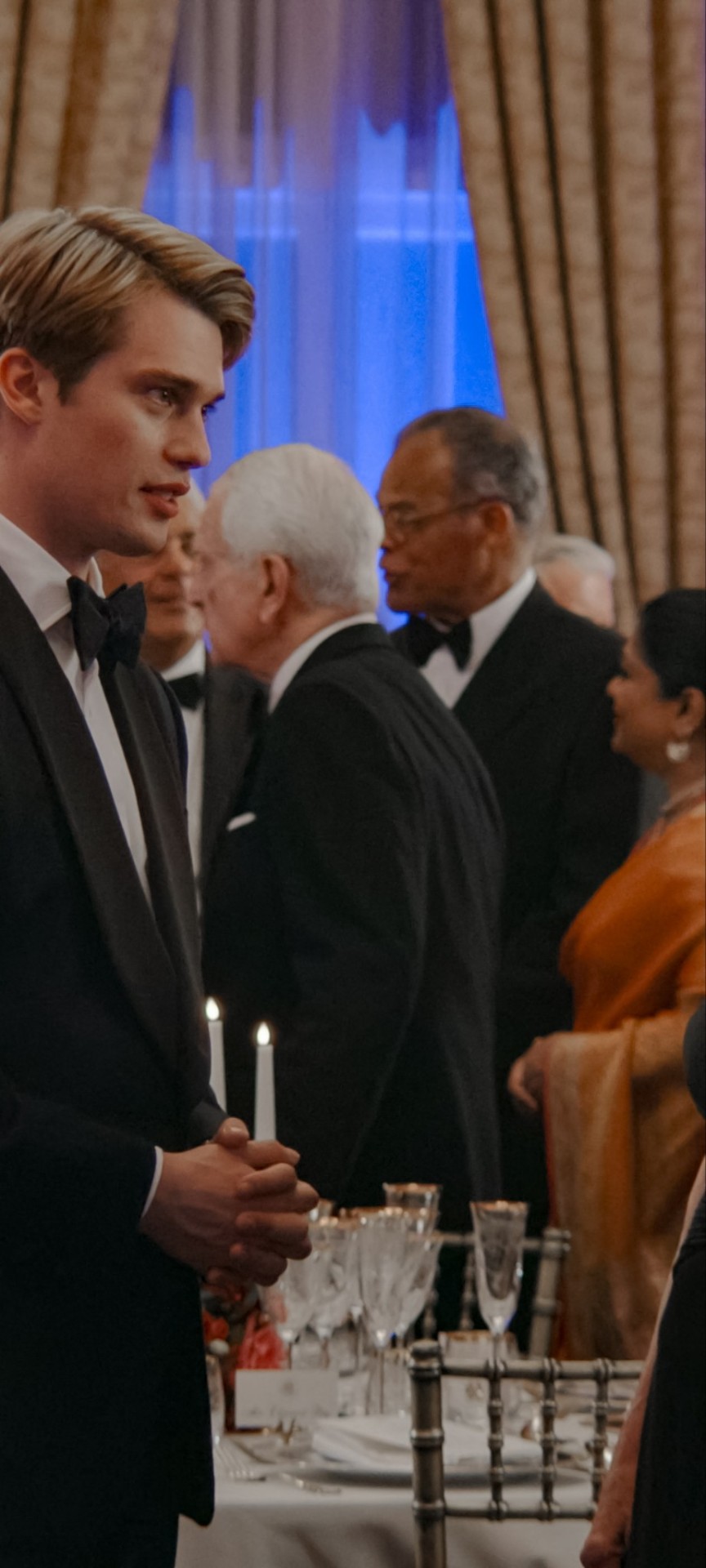

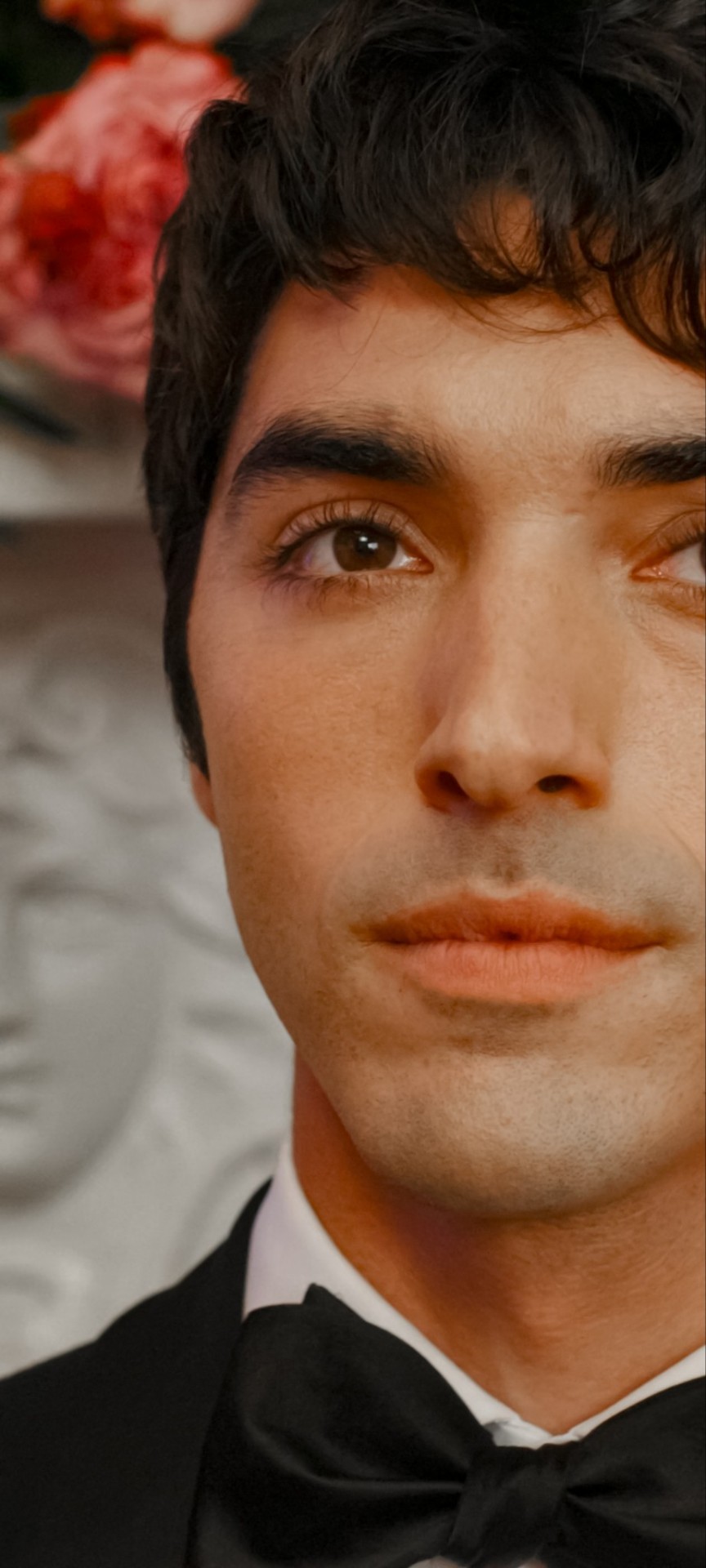

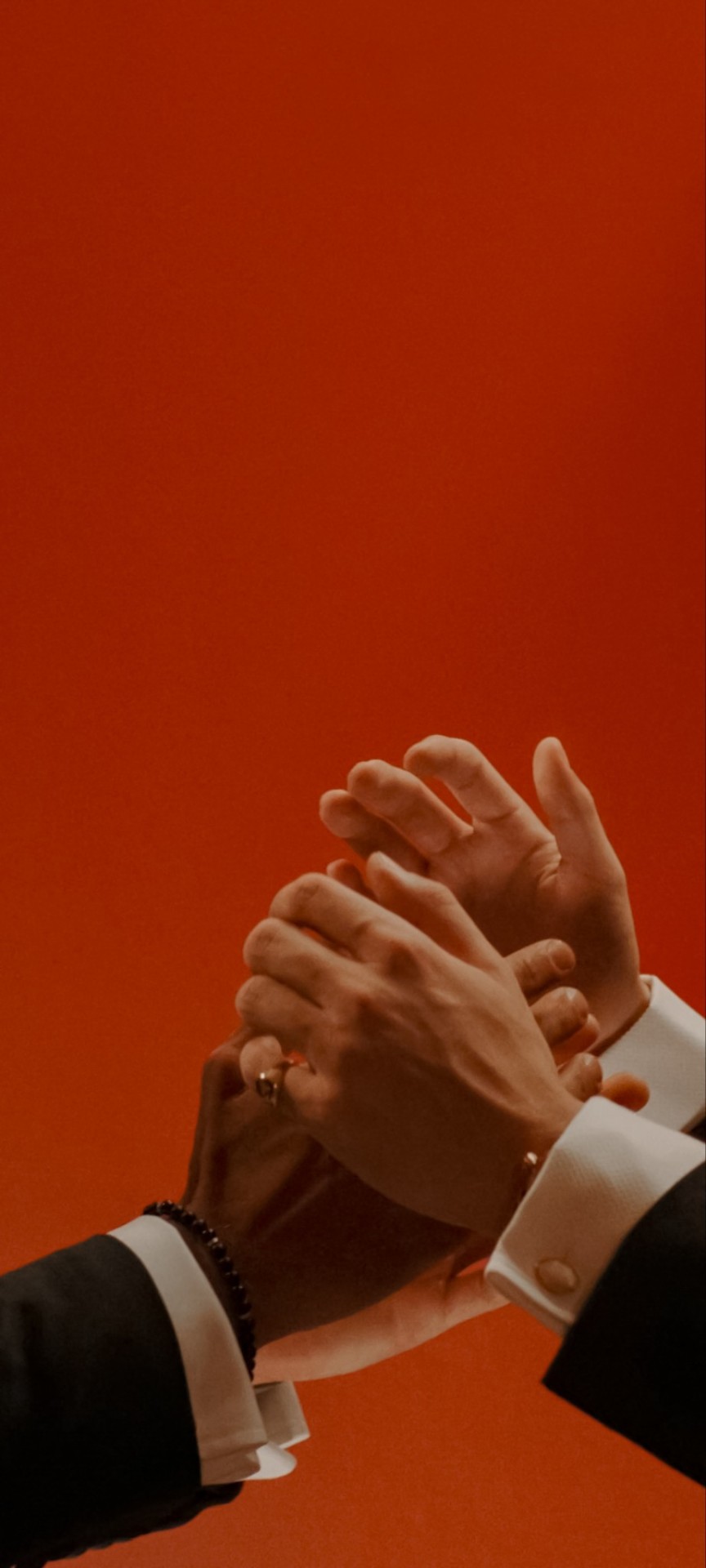
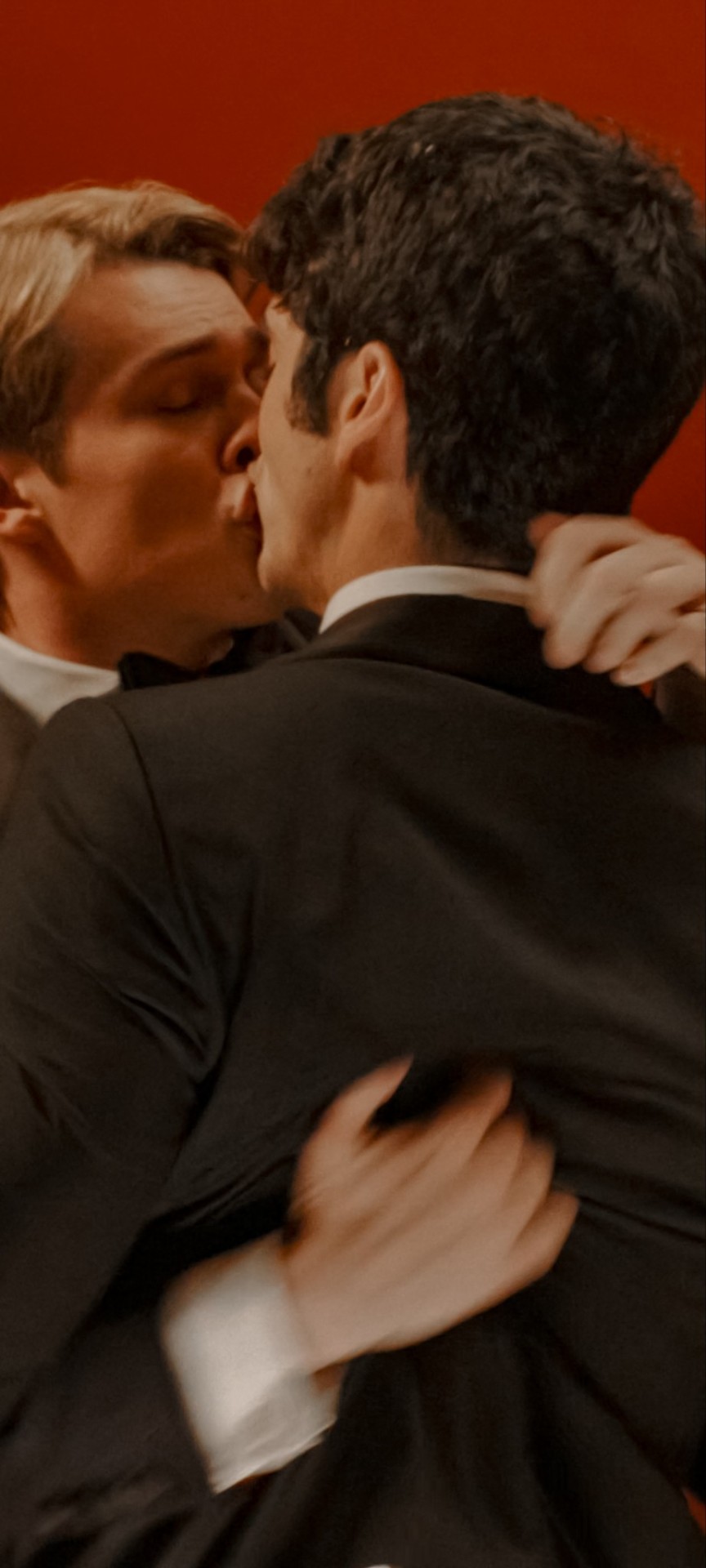

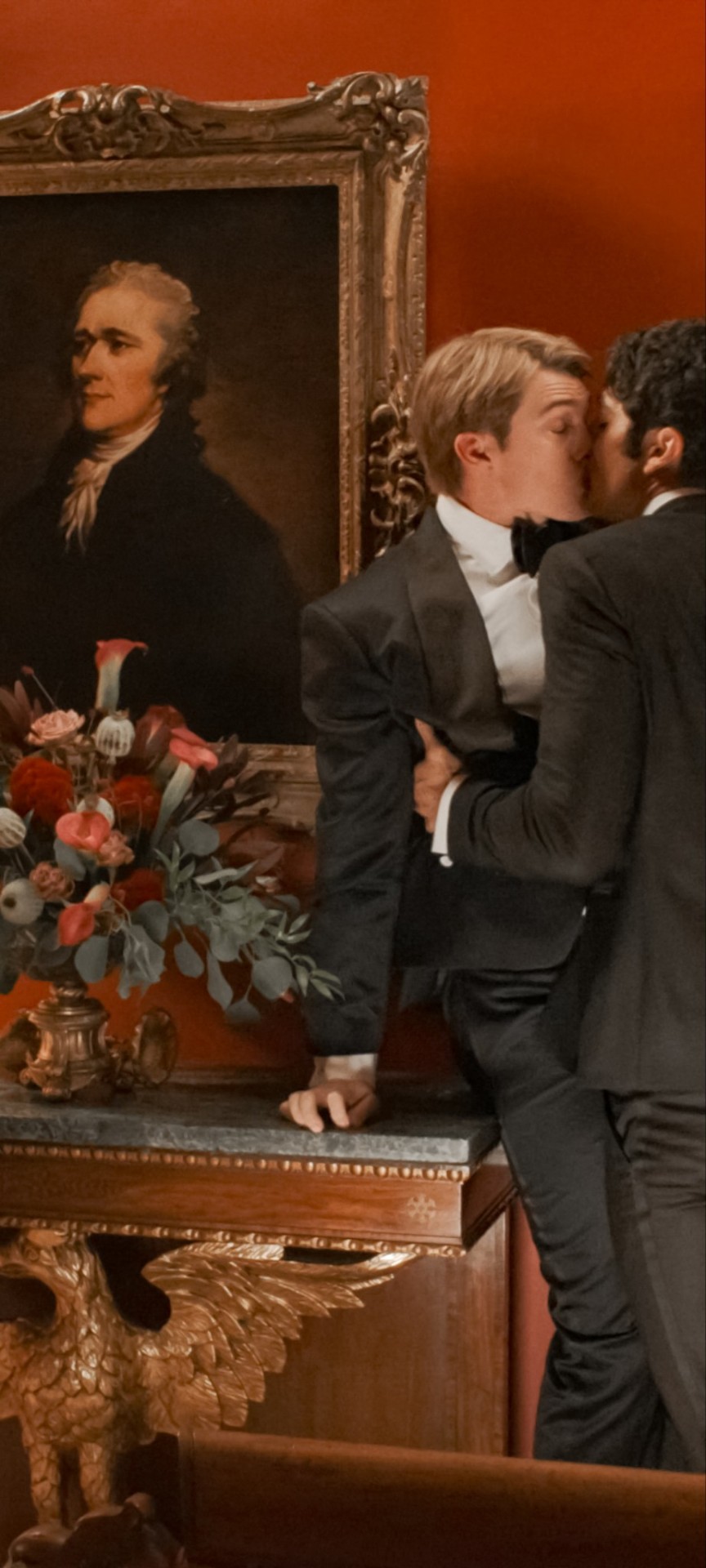


"I need to talk to Henry."
Red, White and Royal Blue directed by Matthew López.
#alex and henry#alex claremont diaz#red white and royal blue#rwrb movie#firstprince#henry fox mountchristen windsor#rwrbedit#prince henry rwrb#rwrb film#rwrb#prince henry#prince henry of wales#henry fox icons#henry mountchristen windsor#alex x henry#taylor zakhar perez#tzp#nicholas galitzine#casey mcquiston#matthew lopez#rosso bianco e sangue blu
413 notes
·
View notes
Text
Just finished watching the red white and royal blue movie, here are my immediate thoughts:
1. Omg this movie actually made me so emotional, I didn't expect to cry, I don't cry at movies much but this one, for many reasons, really made me feel a lot of things. I can already tell it will be a huge comfort movie for me going forward and this is simply because of the incredible story that Casey Mcquinston created, the directing of Matthew Lopez, and the acting of Taylor Zakhar Perez, Nicolas Galitzine and many more. (If ANYONE wants to say they have no chemistry I will fight you)
2. The way that the relationship between Henry and Alex is shown is incredibly well conveyed and in a way which could be realistic. We see that sweet sweet enemies to lovers but even after they get together it continues to develop and their connection grows stronger into a special bond which we see at the end of the movie (no not the post credit scene, that was a lil silly, nice touch though). Also going off on a slight tangent here, one of my main complaints about heartstopper season 2 was that Nick and Charlie are always kissing/making out, I was worried that this would also be the case for rwrb, but it definately wasn't. I read so many articles on how the intimacy coordinator directed the two actors and how much they themselves researched into the role to really deliver their best performences. It definately paid off. I felt that there was a really nice balance between the really intimate scenes which we see a lot of in the book and sweet tender moments where they really show that these two characters really love each other and aren't just super horny.
3. The sets and the way they filmed the whole thing. yes. The main one I want to comment on is the iconic cake scene, which as I said, I read a lot of interviews, and from those I know that Matthew Lopez had a vision for this scene which he worked really hard to get perfect, and it had a really good turnout (I know I already mentioned it but I love the post credit scene so much). One of my favourite things was Matthew Lopez revealing that the birds eye shot of cake falling onto Alex and Henry was him and another crew member dumping cake into them, this isn't that relevant to my thoughts but I just found that detail hilarious as Lopez said it was a "good way to let off steam." Other than that scene, which for me was a very important part of the film, I don't really know much about the technical side of a production like this, but as a viewer it all came together nicely and the sets were nice.
4. A reason I really connect with this film is the fact that I am a queer teenager who has learned to accept themself, gone through the coming out process (somewhat, we don't talk about extended family). I absolutely love the positive representation that this movie gives to the queer community. For people who have not read the book, it is an incredible story, and for a lot of people it shows for the first time in media that LGBTQ+ people can have their happy ending, it won't be easy to get there but it is worth it in the end. While in reality we see this with queer couples a lot, the community has had to fight for their rights and are still in that process, in countries where it is legal it is still very common to be judged, attacked and even killed for your self expression. So for me this was a very fresh (even though I read the book) story for the community, to show that the battles are worth fighting for your happiness. As I touched on before, I think a reason that this works so well is that the characters are so relatable to the average viewer, despite their positions. The are made to be comedic and actually have banter like you'd expect, it's not uptight and only about the romance and spicy scenes. This is really comforting to so many people out there and it feels very appropriate with the world we live in now. I would say my favourite scene in the entire film was the v&a scene, it's so cute I don't know how else to put it, literally a romance dream. Sorry if that was my worst tangent yet, you can tell I'm passionate on the subject.
5. I just wanted to mention some of the other characters. Like a lot of people I was really disappointed to find out that characters such as June and Liam would not be in the movie, however I think this is made up for by the great portrayal of other characters, my favourite being Nora who, let's be real, is not only Alex and Henry's number 1 shipper, but also just gives the best advice. Everyone in this movie genuinely gave such a great performence and I can only thank the entire team for giving us the adaptation that the book deserves.
6. I'm giving the spicy scenes their own point to mainly say that they aren't even that spicy, I personally don't even see why this film was given an r rating and I believe, as many others have said, that if this film was a straight romcom then it wouldn't be given that rating. Yes you see them with clothes off, there's no dick, you only actually see them having sex once, the others are mainly foreplay, really nothing that explicit.
7. I thought I would also dedicate a point to the travesty that is certain quotes from the book that were not included, "you obtuse fucking asshole." "fucking eyelashes." and "Remus John Lupin is gay as the day is long." (ok they probably couldn't get copyright permission to add that one) "I'm gonna take your pants off now... yes good carry on." "for fucks sake man you just had my dick in your mouth, you can kiss me goodnight." and "what in the rich white people sex dungeon." I know that they probably didn't want the script to be a direct copy of this book but some of these quotes would've been nice, also I like that they atleast mentioned the PowerPoint, despite not having the actual PowerPoint.
I hope you enjoyed my overly formal review/thoughts on the rwrb movie which slowly got more deranged in the hour that I was writing this, I began writing this around 3:20am just after I finished the movie, and it's safe to say, I won't be coming back to this to correct any spelling or punctuation mistakes. Overall I love the film, as typical as it is for a romcom, I love the characters and I really like what they were able to do in the 2 hours of the film. Obviously it's never going to be a perfect adaptation but I loved every second of it nonetheless. It's cheesy, it's romantic, but that's what gives it it's charm and makes me love it so much. I'll be hoping for a series to futher explore the story but that'll probably stay in my delusions.
It is now 4:20am, goodnight (I'm not going to sleep, I'm just not being formal anymore)
#red white and royal blue#red white & royal blue#red white and royal blue film#red white and royal blue movie#rwrb movie#rwrb film#rwrb on prime#rwrb review#alex rwrb#rwrb alex#henry rwrb#rwrb henry#henry fox mountchristen windsor#henry mountchristen windsor#prince henry of wales#alexander claremont diaz#alex claremont diaz#henry x alex#alex and henry#taylor zakhar perez#nick galitzine#nicholas galitzine#tzp#matthew lopez#casey mcquiston#firstprince#first prince
21 notes
·
View notes
Text
RWRB: The Movie
Even before RWRB started climbing the bestseller lists back in 2019, the word was out: this one is going to be big! So Hollywood studios immediately began clamoring for movie rights, which Amazon Prime won in a sealed-bid auction. We fans then filled the internet with suggested cast lists—I was going to say, “none of which even came close to naming the actors eventually chosen, especially the principal leads.” But then a friend reminded me that he had actually suggested Rachel Hilson as Nora from the start, and (don’t read this next bit, Nick and Taylor), “I also had some great suggestions for Alex and Henry, which would have been perfect if they had gone for younger actors closer to the ages the novel specifies.” I sit corrected.
Meanwhile, we settled in to wait for an announcement that the movie was starting production, with a fervor unmatched by even the most rabid fans of the Left Behind series looking for the Second Coming. And we waited … and we waited … and we waited. First-time director Matthew Lopez, a Tony award-winning playwright who also wrote most of the script, seemed to be taking his sweet old time casting the film (though I suspect that once Nicholas Galitzine threw his hat into the ring to play Henry, no one else was even considered). And there matters sat. It didn’t take quite as long to start filming as Jesus has taken to return, but at times, it sure felt like it.
Then, with a rustling of angels’ wings and a blast from golden trumpets, the announcement came: the film had been completely cast and shooting was about to begin! Aside from the two leads, Matthew gave few particulars about who was playing whom, and almost no candid shots of scenes being filmed showed up on the web. There was a bit of flack when Rachel Hilson was announced as Nora, because of the book’s only Jewish character becoming Black. And when Queen Elizabeth II happened to die three weeks after principal shooting ended, people began speculating about the possibility of Matthew being psychic, since he had chosen to replace the novel’s Queen Mary with King James III. Obviously, it didn’t take Madame Cleo to predict that a 96-year-old lady might not survive much longer and that a male monarch would occupy the throne by the time of the movie’s premiere. But in the midst of all the mystery surrounding the film, we needed to talk about something.
Then shortly after shooting wrapped, Nicholas Galitzine was asked how faithful the movie was going to be to the novel. Somewhat nervously, I imagine (he later confessed in an interview with GQ that he never actually finished reading it, so no doubt he was a bit hazy about details), he cautioned us not to expect a carbon copy of the novel, but instead to treat the two as “entirely separate.” He then added, “I just hope that people will think of this as a fun movie.”
Sorry, Nick. RWRB is not a fun movie. Yes, like the novel, it is funny in spots (and Matthew’s script, which I felt actually improved on some of CMQ’s lines, is also remarkably faithful to the original in its general outline and inclusion of certain iconic scenes—far more than most movie adaptations). But the film is mainly concerned with serious issues, and aside from occasional lapses into preachiness, it treats these issues with sincerity, tenderness, and genuine feeling. And this is in no small part due to the performance of Nicholas Galitzine himself.
I find Nick Galitzine to be one of the most amazingly attractive human beings I have ever seen. It’s not just because of his handsome face; my admiration springs from his obvious innate decency, his endearingly goofy sense of humor, and his undeniable talent. There was no need for him to admit that he never finished the book—it’s not like we could have checked—but when asked, he told the truth, because he is an honest man. When the writer from GQ whispered that some other diners at the restaurant where they were meeting were getting irritated because Nick was being too noisy, he immediately got up on his crutches (he had chipped a bone in his ankle in an accident on the set of his latest project, Mary and George) and tottered over to apologize, an all-too rare example of consideration and good manners in this post-Trump world. When teased about his habit of calling everyone “mate” and hailing them as if they were long-lost BFF’s, Nick replied with a laugh, “Everyone is my friend—I’m just very excited to see them! I’m very enthusiastic!” I’m sure that truer words were never spoken.
Though Henry was easy to cast, the hunt for Alex took rather longer, because Matthew was searching for someone who demonstrated just the right chemistry with Nick. Then a thirty-year-old actor named Taylor Zakhar Perez put himself forward (too old, I would have thought, to play the 21-year-ol Alex; plus, at 6’2”, he was actually two inches taller than Nick, and CMQ had made a major plot point out of Henry’s superior height). But when Nick and Taylor first met, Matthew was called away for a few minutes, and he came back to find them talking nineteen to the dozen like they were old friends. At that moment, Matthew knew he had found his Alex. The possible objections were easily dealt with (Alex is no longer a college senior, but instead is now in law school, so he could easily be in his mid-twenties; and clever camera angles make Nick look taller. The script also creates a running joke out of Alex continually insisting that Henry cannot possibly be 6’2” as his fact sheet claims; and when they’re standing side-by side, Henry accuses Alex of wearing lifts. Alex’s look of confused dismay makes us actually wonder). They are perfectly matched, and the result is screen magic.
I found Taylor to be a complete revelation. His last movie had been a quickly-forgotten (luckily for him) bomb called One Up, in which Taylor’s lines were mostly restricted to comments like, “No, girls can’t join our team! Girls can never compete with men in the field of …” (wait for it) “competitive gaming!” Huh? We’re not talking about professional wrestling or weight-lifting—we’re talking about computer games. Moreover, countless studies have shown that women’s reflexes are quicker than men’s, their brains are proportionately larger, and that men’s only real superiority is upper body strength. I thought that such ignorant sexism as Taylor’s character in One Up conveys was a thing of the past, but in a world where women can lose the right to control their own bodies at the stroke of a pen, maybe not.
Though Taylor has never before played so major a part (that I’m aware of), he acquits himself admirably here. From the moment Alex tries to persuade Nora to ditch the reception and “go do touristy things,” the role of Alex is obviously in just the right hands. As it turns out, Nora might have done well to accept Alex’s suggestion, because he gets drunk at the reception and manages to create an international incident. And I must say, I very much enjoyed Henry and Alex’s interaction at the reception. Not only was I finally able to visualize the exact sequence of events leading to the disaster with the cake; I loved Henry’s fury at Alex’s dismissal of the proper use of titles (more about this below). It may make Henry look like a snobbish prig (which is certainly how Alex sees him), but Henry doesn’t care what Alex thinks. It also shows just how far Alex can goad him. For a royal, displaying such fury is even worse than making a scene, because royals are supposed to smother their feelings and appear cool, calm, and collected, no matter how trying the circumstances. Alex may be the first person who has ever been so lippy with Henry, and he really gets under Henry’s skin by doing so. (Which he will later do in a much more literal manner ….)
Which leads me to the BIG question we all wondered about: did Nick and Taylor’s offscreen friendship translate into SIZZLING sex onscreen? Well—no. And that’s fine by me. Any time I want to watch porn, there are any number of sites I could visit (or—ahem—so they tell me). Instead, these sex scenes give us poetry—aching, tender, romantic, and beautiful, allowing us the chance to peek into the depth of the characters’ intimacy, something made possible only by the actors’ consummate artistry. (Sorry—I couldn’t resist that one.)
Their first sexual interaction happens at the New Year’s Eve party, where they spend the entire evening talking and laughing together in a way that completely excludes everyone else. But then while everyone is sharing kisses at midnight (and several beautiful women make a beeline for Alex), Alex notices the (unkissed) Henry staring at him, heartbreak writ large on his face. Henry grabs a magnum of champagne and disappears, so Alex tracks him into the frozen Rose Garden. Critics have commented that this scene is detectably CGI, but come on, people—the movie was filmed during the summer, and it’s not like they were going to fly cast and crew to South America for a true wintry landscape. Besides, the actors’ talent made them look cold, which more than met the needs of the scene.
The ensuing kiss is straight out of CMQ, and I thought Alex’s reaction to Henry’s grab-and-smooch is particularly good. At first he seems startled (though not shocked), but then he plainly starts getting into it. It is Henry who breaks away, with a look of shock and terror as he realizes what he has just done. Without a single word, Nick is able to show us exactly what Henry must be thinking: Oh, my God! I let the mask slip—again! How does this bloke always make me do exactly what I was brought up not to do—expose myself by showing my real feelings? Christ! I need to get out of here!
Now it’s up to Taylor to show Alex’s reaction to the incident. In the movie, he seems not to feel much more than mild surprise, and a vague curiosity about whether Henry might be gay. But in the book, Alex goes into full-on gay crisis mode because of his body’s immediate reaction, and he develops even more of an all-consuming obsession with Henry. CMQ devotes twenty pages to this issue, one which all LGBT’s must eventually face (and twenty pages is actually getting off easy—in my case, accepting my bisexuality took decades). But since the movie’s Alex readily acknowledges his male lovers, enjoying Henry’s kiss isn’t an issue for him at all. The only complication he now faces is coming out to his parents, though I’m sure they figured out that their son was bisexual long ago.
Then comes the White House dinner and the Red Room scene, after which Alex orders Henry to “come to my room at midnight, where I am going to do very bad things to you.” My aforementioned friend (the one with the cast list) points out that Henry unbuttons Alex’s shirt and begins kissing down his chest and stomach, and Alex leans back with a look of gratified pleasure, but then at the end of the scene, Henry is still fully dressed. (Didn’t Alex reciprocate?) Henry then invites Alex to a polo match back in the UK, at which we see the guys kissing and Alex pushing Henry onto his back and reaching down to remove Henry’s belt, and … that’s as graphic as it gets. Matthew rightly protested the movie’s “R” rating, since aside from a couple of f-bombs and a brief shot of Taylor’s bare backside, that’s it. An “R” rating? I suspect that it’s studio nervousness about a potential homophobic reaction, and if the execs are that squeamish, why did they buy the movie rights in the first place?
The final sex scene is extremely well done. Henry begins by telling Alex that he wants to make love to him, to which Alex uncomfortably replies, “Make love? Who says that anymore?” Well, maybe Henry didn’t want to scare you off, Alex, by using the same words as he does in the book: “Please—I need you to fuck me.” But obviously, Alex intuits that this is exactly what Henry wants, because Alex says nervously, “Um—I’ve never—” to which Henry smiles and says, “Don’t worry—I went to an English boys’ boarding school,” which is a far more likely scenario for Henry to have been initiated into gay sex than a virginal 17-year-old Henry being seduced by one of his older brother’s friends.
The two lovers gaze at each other, and then they gently, almost reverently, begin to touch. It made me think of times at night when my wife and I are in bed, and I look at her asleep on the next pillow, and I touch her in exactly this way. My heart feels like it will burst, and wonder floods me as I realize that this woman, whom I have loved for all these years, actually loves me back. Can the human heart ever experience anything more wonderful than such a realization? The same knowledge shines out of the men’s eyes in this scene—I love him, and he loves me. Then the touching becomes more intense, and as the scene progresses, without a single word or sound, Nick conveys the exact moment when Taylor seemingly enters him, and precisely when the pain of initial penetration tips over into pleasure. I’ll say it again: this guy is amazing. Ever since I first started watching Nick’s movies, I have said that he can communicate more in ten seconds of silence than other actors can manage in a two-page monologue, and that is exactly what he does here. (And he still has no acting awards? I mean, really?)
Alex acknowledges to himself that making love is exactly what he has been doing with Henry all along, but by trying to share this realization he only succeeds in scaring Henry off. Henry begins deflecting every time Alex brings up their future together, a future which Henry believes to be impossible. Alex tells him, “I want to see you at a barbecue stand with sauce smeared all over your mouth, so I can lick it off,” to which Henry replies, “Don’t they have napkins in Texas?” Alex begins talking about spending time together after the election, when “we can be naked all day, and walk down the street holding hands” (presumably after they’ve put some clothes on). I loved watching Taylor’s face as he nervously suggests their eventually going public, and tries to make his declaration of love. And (as always), Nick perfectly conveys Henry’s troubled emotions, as Henry cuts Alex off by jumping into the lake. The fear on Henry’s face as he submerges himself in the water is a perfect visual metaphor for the doubts and terrors in which he is drowning.
And make no mistake—these fears are well-grounded, and very real. Henry was born into a world where nothing matters more than hierarchy and the strict rules which govern it—thus his insistence that Alex address him correctly as “Your Royal Highness” rather than “Your Majesty,” a title reserved the monarch alone. Priggish? Pretentious? Maybe—but take away the outward forms which maintain this artificial world, and who is Henry? And if Henry insists on being himself and steps outside the royal system, the punishment will be both immediate and severe.
Prince Harry and his wife were still newlyweds expecting their first baby while CMQ was writing the novel. No one could have predicted that the devil’s bargain between the Palace and the media (which always demands a villainous royal to skewer before they publish praise about a more important one) would lead to the vicious unpopularity Meghan Markle currently suffers. The written abuse heaped upon her (greatly assisted by social media) became so severe that she firmly believes it led directly to the loss of their second child. So they felt they had to flee the country if they were going to save their marriage and their family.
But as Prince Harry describes in his memoir, Spare, they soon discovered that for doing so, within twenty-four hours of their arrival in this hemisphere, his funds were cut off and they were officially evicted from both their royal residences. The very next morning, his security detail was taken away, leaving them homeless and unprotected in a world of crazy stalkers (from whom Meghan had been receiving death threats) and intrusive paparazzi. Harry also found that a private security firm would cost him roughly six million dollars a year, which would soon eat up every penny his mother had left him. Fortunately for Harry and Meghan, friends stepped into the breach to help them, but except for a very few, his family has turned on him with silent fury and stony faces ever since. Even Prince Andrew, convicted of molesting an underage female and who must register as a sex offender anywhere he goes for the rest of his life, got more generous treatment than this. All Harry did was put his love for his wife and children above royal duty, but for doing so he has been cast into the outer darkness. And for the sin of claiming his own right to fall in love with a brown-skinned American, Henry knows he would suffer the same fate.
But RWRB is a fairy tale, so of course everything works out fine in the end. The election which Alex’s forced outing has put into doubt ends with Ellen’s victory due to a strategy devised by Alex himself. Despite intense pressure from the royal family, Henry insists on staying with Alex and acknowledging their true feelings for each other, and the entire world rallies around them. It is a triumph for love and tolerance over “the stifling suffocation of heteronormative conformity.” (I wish I didn’t have to put that line into quotation marks, but no one who knows me would ever believe that I had come up with such an erudite and well-turned phrase on my own.)
I enjoyed the film immensely. I thought the actors were top-drawer, as was Matthew’s adaptation and direction. So what didn’t I like? The watering-down of the certain characters for one, but above all, the elimination of others, especially Alex’s sister June. Please bear with me, though, because I think I have a glimmer of understanding as to why Matthew might have done this. And with his love for the book, I am sure that he did not arrive at his decisions lightly.
Let’s start with the character of Nora. In the book, she is someone “with a computer for a brain” who adopts the online persona of “a depressed lesbian poet who meets a hot yoga instructor in a speakeasy and is now marketing her own line of hand thrown fruit bowls.” But in the film, she becomes little more than a walk-on, and her brilliant, prickly presence gets watered down into a warm and loving sister surrogate (necessary since June got axed—why include June when Nora can function for both?). Now that Nora is Alex’s supportive older sister, obviously there’s no hint of their past relationship from the book, in which “they just had to fuck to get it out of the way.” And without June, there’s also no need for a lesbian subplot. In the process, almost all of Nora’s spunkiness gets lost, and once the reception scene and the discussion with Alex about Henry’s New Year’s Eve kiss are over, she has nothing much to do but smile from the sidelines as she pairs up with Pez (who is also reduced to almost nothing—Henry’s incredibly wealthy, highly amusing and sexually ambiguous best friend barely has two lines). By reducing these characters, the movie loses the interest they both bring (Nora in particular).
This sort of character reduction is not limited to Nora and Pez. Many remaining characters get sanitized as well, if not entirely deleted. The abrasive Zahra who threatens to “staple Alex’s dick to his leg if it’ll keep it in his pants” morphs into a wisecracker who serves the essential function of calling Alex to account and dealing out the discipline he so obviously requires, but who always remains a friend. She thereby becomes much more likable—I loved the original character, but I used to wonder how someone so rude could have made it so far in politics—but in the process she becomes much more bland, and we lose most of her salty, prickly humor.
The salty-tongued Ellen, who sometimes uses her children as props and who ruthlessly cuts Alex loose when he threatens to become a campaign liability, gentles down into mere exasperated bossiness when dealing with her only child, and in the process becomes a fairly minor character. She shows none of the grit and determination that would have led her from her mother’s bar all the way to the White House. She is also still married to Alex’s father, Oscar Diaz, who has morphed from an important California senator into an undistinguished Congressman whose speeches everyone (but Alex) ignores. With Oscar and Ellen still together, the character of June loses one more necessary function: supporting and protecting Alex in the wake of their parents’ divorce, as well as her habit of challenging him for the behavior she believes may be fallout from Alex’s still-conflicting loyalties to his warring parents. But in the movie, the only hint of conflict between Mom and Dad is Oscar asking his son not to tell his mother that Oscar has been smoking out on the Truman Balcony.
And then there’s Rafael Luna. His abrasive, mentoring character gets deleted entirely, and his seeming betrayal (which causes Alex such agonized soul-searching) gets replaced with actual betrayal by a shifty investigative reporter. Luna goes undercover to expose a sexual predator and to prevent such a person from entering the White House (if only there had been this sort of double agent on the Trump campaign!). But in the movie, the guys get outed because a reporter named Miguel, a former lover of Alex’s, becomes jealous when Henry and Alex go off together at the DNC. I loved the cameo by Joy Reid (as I also loved the cameos by Rachel Maddow—and Matthew, while you were at it, why didn’t you also get Steve Kornacki?) as she pushes the reporter to explain why he had done such an underhanded thing. With all the hypocrisy and smug sanctimoniousness typical of his breed, the reporter gives a BS answer about “the public’s right, and need, to know such things about the people they elect,” which Joy immediately challenges by pointing out that (a) Alex has not been elected to anything, and (b) he has a perfect right to keep his private life just that—private.
So why did Matthew make all these changes? I think it may be for one simple reason: anyone adapting a novel for the screen must first identify the elements that made the original so popular, and, since we’re talking Hollywood, those which are also the most marketable. Every word must somehow advance the main storyline, and all subplots that distract from it must be ruthlessly eliminated. Multiple characters get condensed into one who can represent them all. There has to be a conflict engineered by the villain of the piece, but the elaborate undercover plot organized by the Richards campaign would have taken too much screen time. So it gets replaced by one which might be summarized in ten words: “Hell hath no fury like that of a lover scorned.” Of course, in a romcom, the screenplay must finally lead to a happy ending, and here we get two: in England, the lovers wave to an adoring public from the Buckingham Palace balcony; and in the US, Ellen finds out that she’s been reelected even as she and Zahra are composing her concession speech. Then Ellen, Oscar, Alex, and Henry wave at adoring supporters cheering Ellen’s victory.
RWRB the novel is only marginally a romcom; it is really a coming-of-age story, its message one of self-acceptance through self-awareness. This is what makes it so wildly popular among the YA audience at whom it is aimed, since adolescence is the time when the struggle to know and acknowledge who we really are is the most difficult. Just before the election, Nora tells Alex that he has no reason to be afraid of people’s reactions to his bisexuality; all he has to do to cement his popularity is to “Be Alex.” It’s good advice for all of us: difficult though it often is, our only real path to a full and productive life is by knowing and accepting ourselves as we are. And as a wise woman once told me, being yourself is a lot easier than being anyone else.
But self-acceptance is a particularly thorny issue for LGBT’s, even if our mothers are liberal Democrats like Ellen Claremont and our fathers are “patron saints of unisex bathrooms” like Oscar Diaz. As members of the culture into which we are born, from our very first awareness we know that there is something different about us. Something which our society teaches us is loathsome and contemptible, and which will inevitably lead to our eternal damnation. This is a pretty tough concept to handle, and we’re forced to confront it even before we enter preschool. But it’s not an issue the movie chooses to address: instead, it focuses on almost exclusively the developing romance between the two principals. This shoves the film’s entire weight onto Nick and Taylor, but fortunately these young men both have broad shoulders, and their talent is more than able to carry it. That talent also keeps us rooting for their characters’ happy ending, and if some characters and most of the subplots get cut, well, you have to break a few eggs to make an omelet.
So. Do I love the book RWRB? Of course I do—and how I wish it had been around when I was struggling with my issues as a young bisexual man in the 1970’s, since it would have saved me years of shame and pointless suffering. I would then have been much more ready for my own happy ending when Bobbie eventually entered my life. And do I love the movie RWRB? I totally do—I’m always up for a romance, and that is what Matthew, Nick, and Taylor have given us. In some ways, I actually prefer the movie (even though I know that saying this may lead to the RWRB police showing up at my doorstep to confiscate my “History, Huh?” T-shirt). You see, there’s one big problem with publishing a book with such a current, up-to-the-minute feel and format: it quickly becomes about as glossy and stylish as last year’s slang, and so when the Commemorative Edition came out in 2022, I found it curiously dated (the best part, for me, was its illustrations by Venessa Kelley). I think the movie will age a lot better, because with only minor alterations, it could be adjusted to almost any era—it’s not tied nearly so closely as is the book to the Gen Z / Millennial generation.
But to love both book and film, one has to accept the essential correctness of Nick’s original analysis: they are two separate entities, or, if you will, two sides of the same coin. One side is self-awareness and self-acceptance eventually leading to true love, and the other is true love which can only be enjoyed by reconciling societal expectations with personal integrity. So I find the book and the movie equally wonderful, just different. And I treasure them both.
#rwrb zine#vkelleyart gallery#casey mcquiston#nicholas galitzine#alex claremont diaz#taylor zakhar perez#rwrb cast#red white and royal blue movie#matthew lopez
8 notes
·
View notes
Video
vimeo
Lululemon - PANTSDEMONIUM! from Sam Pilling on Vimeo.
Drop everything... Lululemon now stock pants FOR MEN!
Starring:
Casey Neistat
Wayne Gretzky
Sean Payton
DK Metcalf
Featuring:
Businessman: Jason Bempong
Cafe Friends: Enrique Garcia, Asher Mudenge & Brody McPherson
Waiter: Ajay Banks
Cafe Owner: Brandy Le
Onlookers at Cafe: Medha Guatham & Vanessa Elie
Man in Hairdressers: Andrew Creightney
Bus Stop: Bradley Duffy, Peter Chan, Connor Riopel
Onlookers: Jasmin Doing & Marcia Eleccion
News Reporter: Vivian Davidson
Cameraman: Carson Bokenfohr
Stunt Driver: Brian Peers
And many, many more...!
Agency: AdLabs LLC
ECD: Shu Hung
Creatives: Mike Lomanto & Michael Lopez
Agency Producer: Alexis Galmin
Executive Producer: Maddi Clarke
Director: Sam Pilling
MD: Davud Karbassioun
Executive Producer: Nick Fuller
Head of Production: Clark Farrell
Producer: Jess Hall
DP: Pat Scola at Iconic Talent Agency
1st AD: Stu Andrews
Production Designer: Jay Hougaard at WPA
Wardrobe: Nancy Steiner
Service Company: Means of Production
Executive Producer: Heinrich Beisheim
Service producer: Jill Sartore
Production Manager: Dan Hellmann
Production Coordinator: Drew Wittstock
Location Manager: Oliver Rappard
Key Grip:Mike Hrycan
Gaffer: Drew Davidson
Canadian Production Designer: Pedro Romero
Director’s PA: Mat O’Hara
Edit: grant Surmi at Exile Edit
Lead VFX: Benn Turner
VFX: The Mill
Post Producer: Matt Squires
Colour: Jean-Clément Soret at Company 3
Colour Producers: Chris Anthony & Ellora Soret
Music: Teddy Beats Picnic - Henry Hall (1932)
Music Search: Twenty Below Music
Sound Design: Sam Ashwell at 750mph
Sound Producer: Olivia Ray
0 notes
Video
vimeo
Lululemon - PANTSDEMONIUM! from Sam Pilling on Vimeo.
Drop everything... Lululemon now stock pants FOR MEN!
Starring:
Casey Neistat
Wayne Gretzky
Sean Payton
DK Metcalf
Featuring:
Businessman: Jason Bempong
Cafe Friends: Enrique Garcia, Asher Mudenge & Brody McPherson
Waiter: Ajay Banks
Cafe Owner: Brandy Le
Onlookers at Cafe: Medha Guatham & Vanessa Elie
Man in Hairdressers: Andrew Creightney
Bus Stop: Bradley Duffy, Peter Chan, Connor Riopel
Onlookers: Jasmin Doing & Marcia Eleccion
News Reporter: Vivian Davidson
Cameraman: Carson Bokenfohr
Stunt Driver: Brian Peers
And many, many more...!
Agency: AdLabs LLC
ECD: Shu Hung
Creatives: Mike Lomanto & Michael Lopez
Agency Producer: Alexis Galmin
Executive Producer: Maddi Clarke
Director: Sam Pilling
MD: Davud Karbassioun
Executive Producer: Nick Fuller
Head of Production: Clark Farrell
Producer: Jess Hall
DP: Pat Scola at Iconic Talent Agency
1st AD: Stu Andrews
Production Designer: Jay Hougaard at WPA
Wardrobe: Nancy Steiner
Service Company: Means of Production
Executive Producer: Heinrich Beisheim
Service producer: Jill Sartore
Production Manager: Dan Hellmann
Production Coordinator: Drew Wittstock
Location Manager: Oliver Rappard
Key Grip:Mike Hrycan
Gaffer: Drew Davidson
Canadian Production Designer: Pedro Romero
Director’s PA: Mat O’Hara
Edit: grant Surmi at Exile Edit
Lead VFX: Benn Turner
VFX: The Mill
Post Producer: Matt Squires
Colour: Jean-Clément Soret at Company 3
Colour Producers: Chris Anthony & Ellora Soret
Music: Teddy Beats Picnic - Henry Hall (1932)
Music Search: Twenty Below Music
Sound Design: Sam Ashwell at 750mph
Sound Producer: Olivia Ray
0 notes